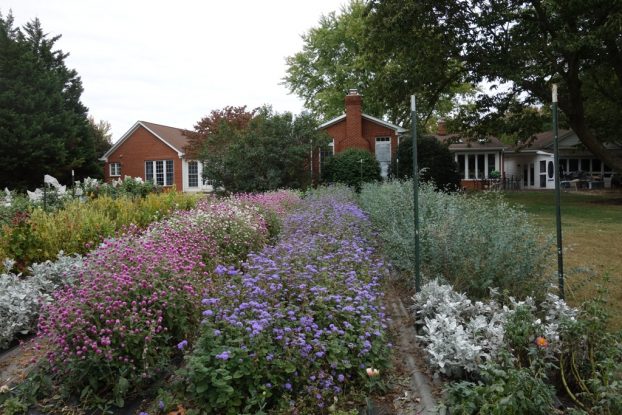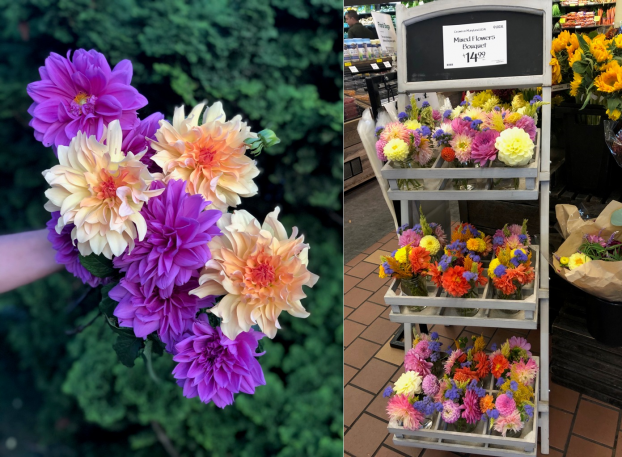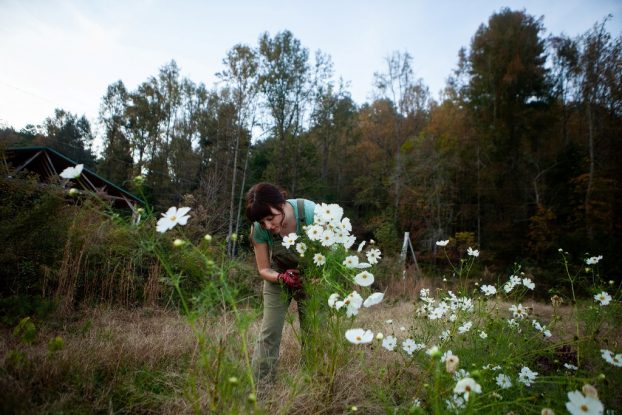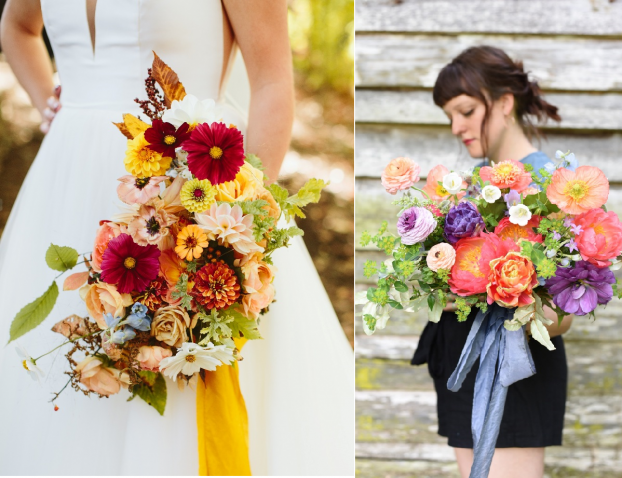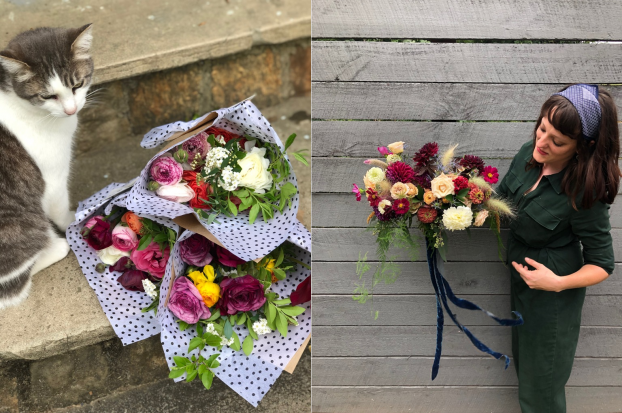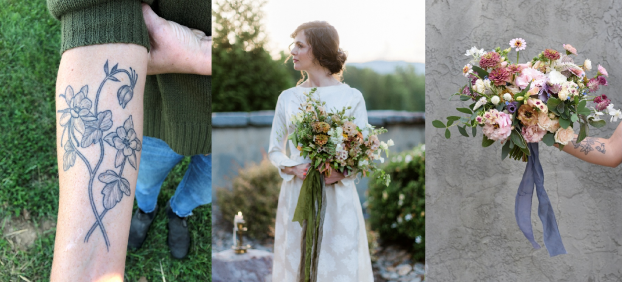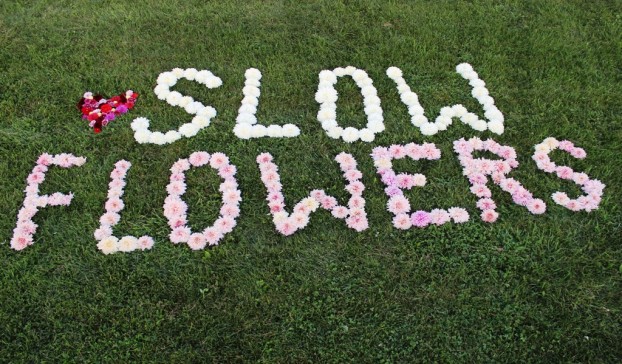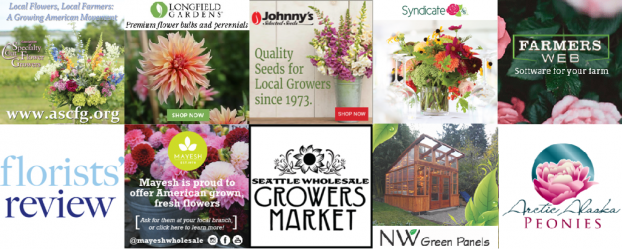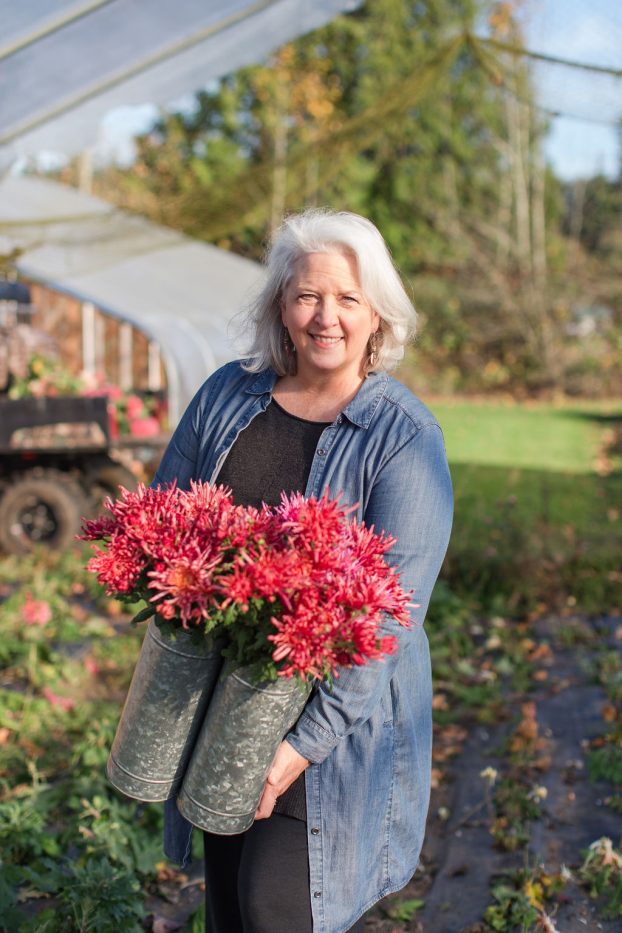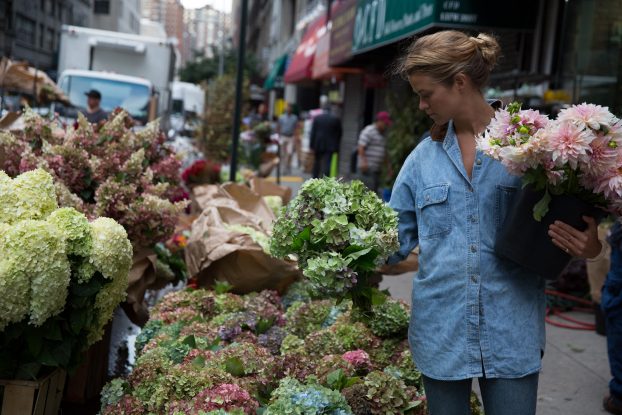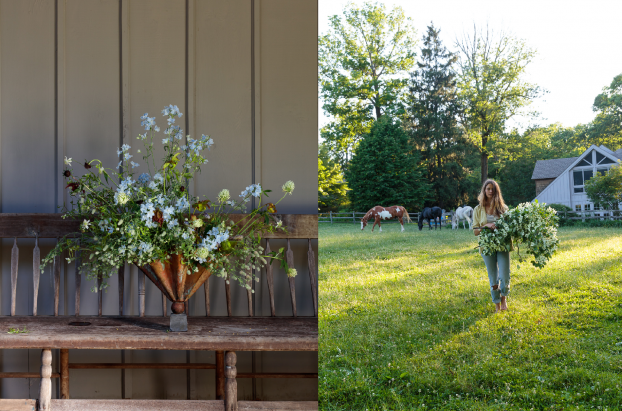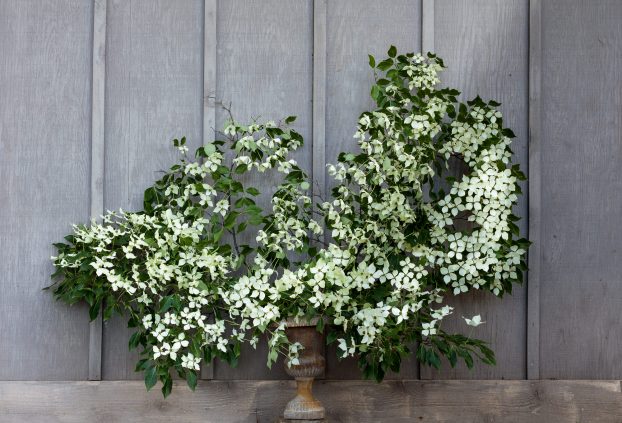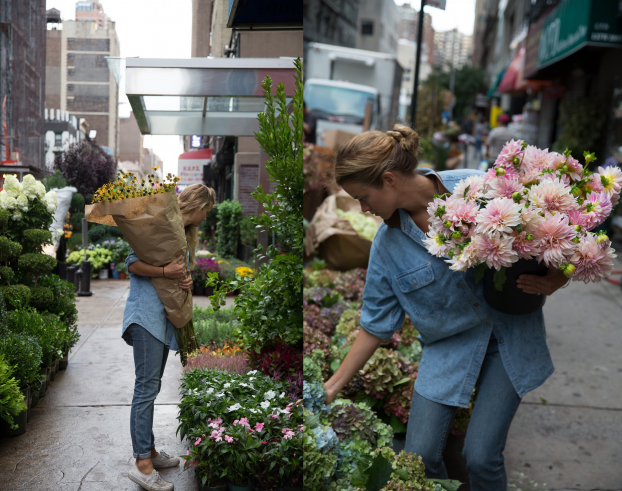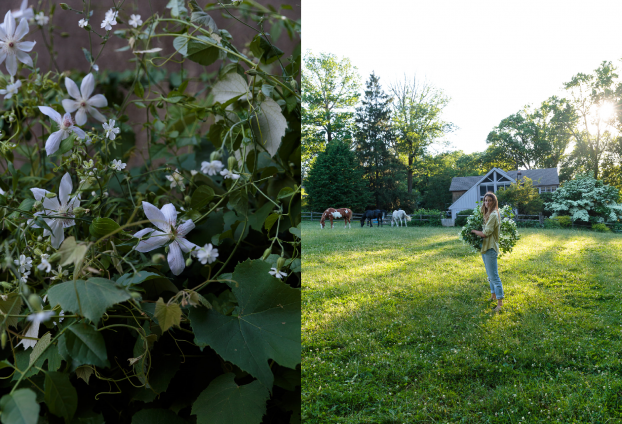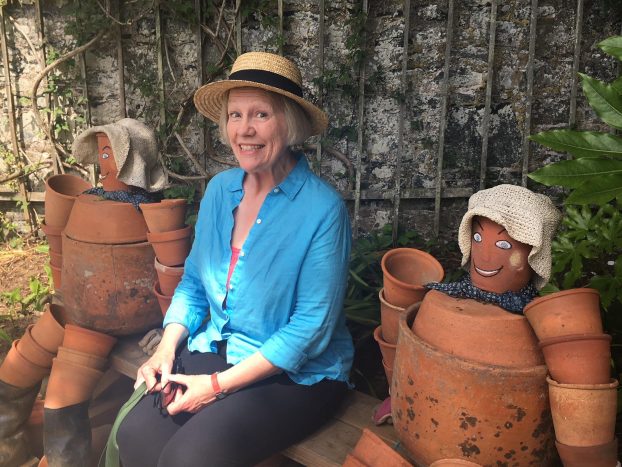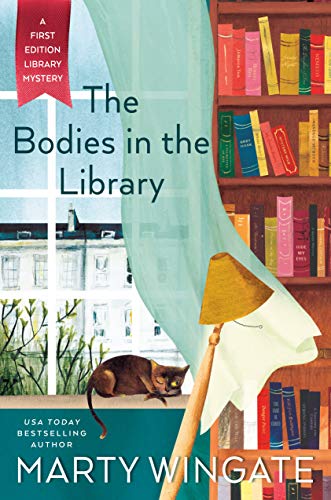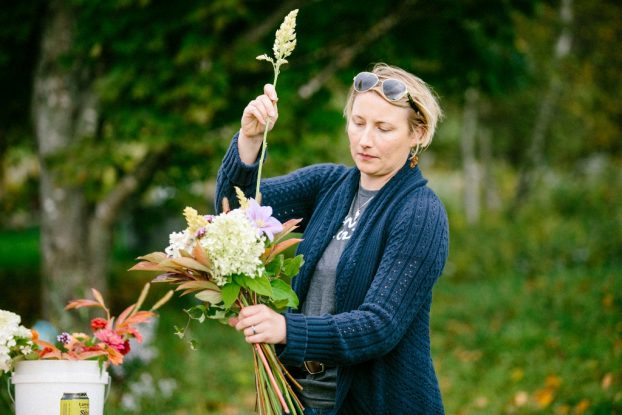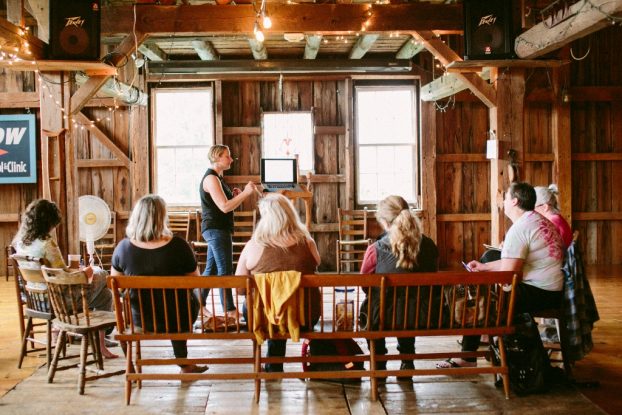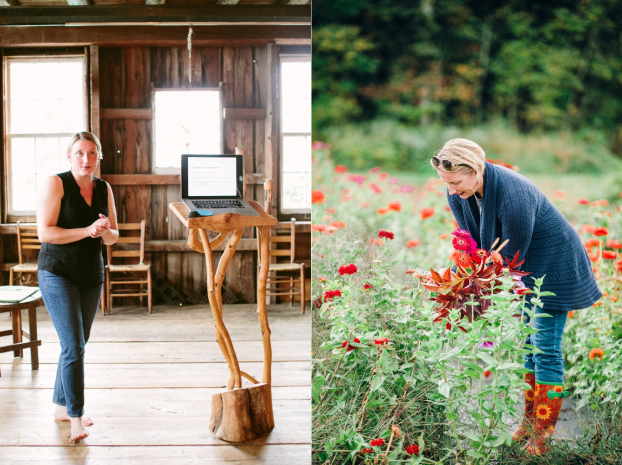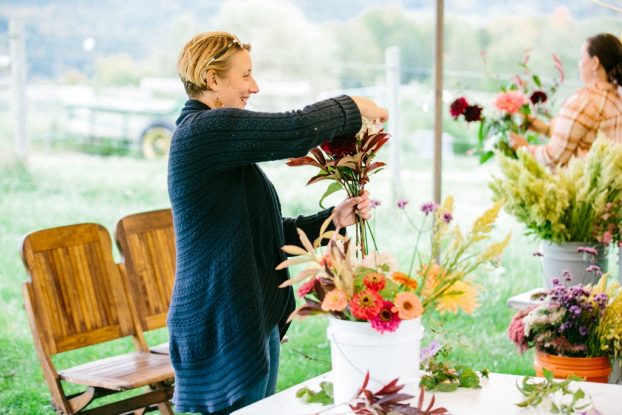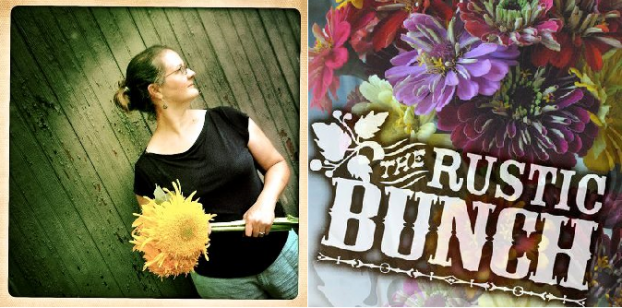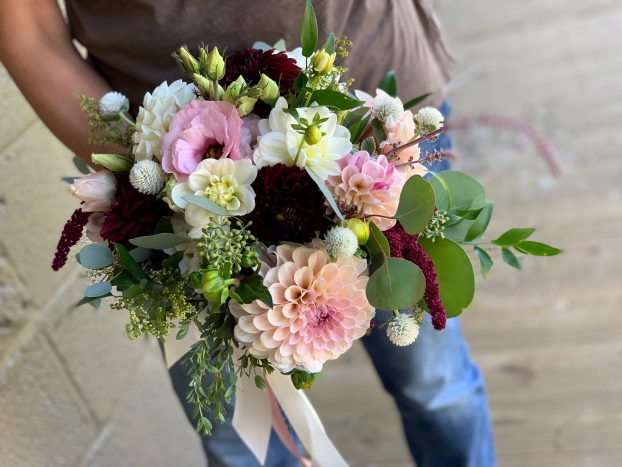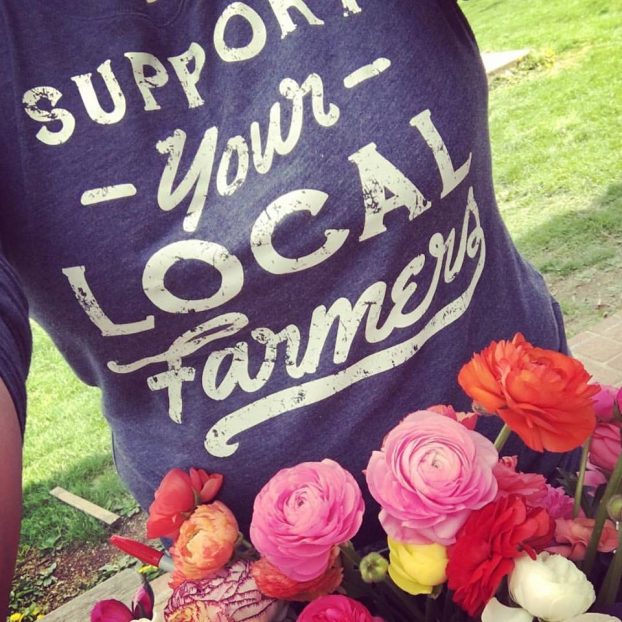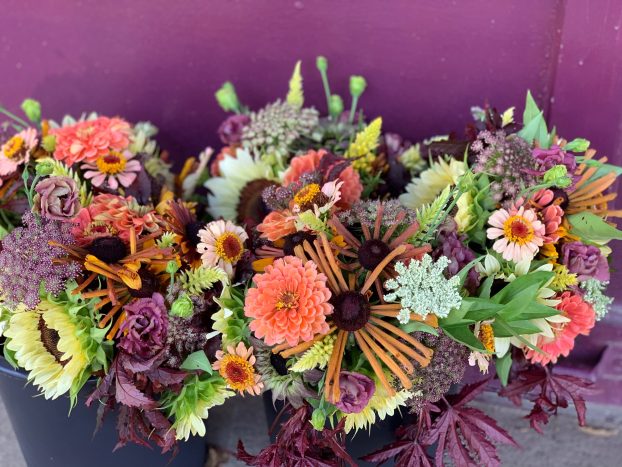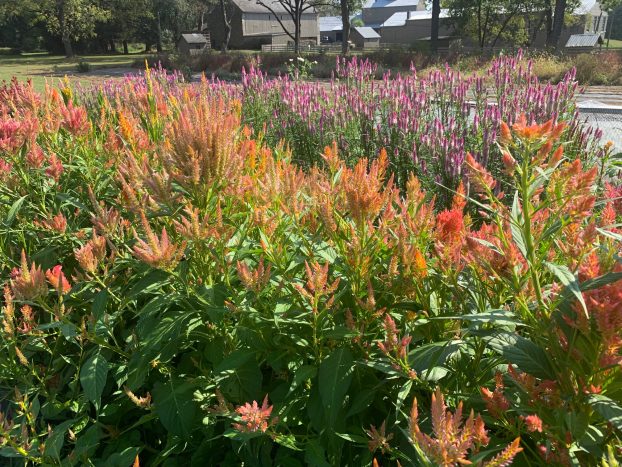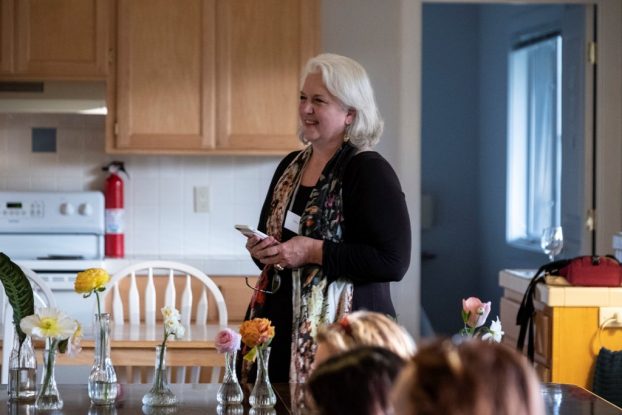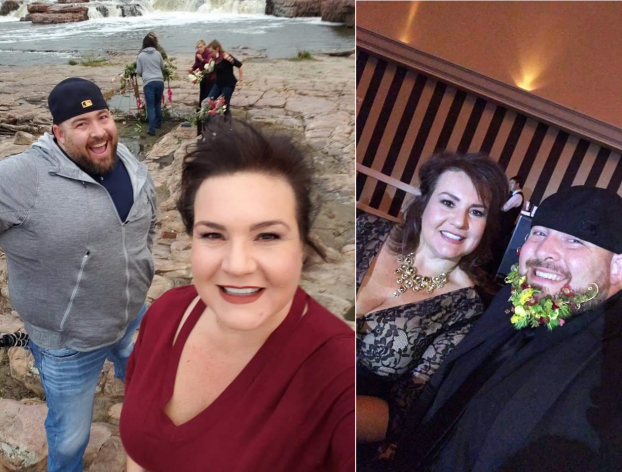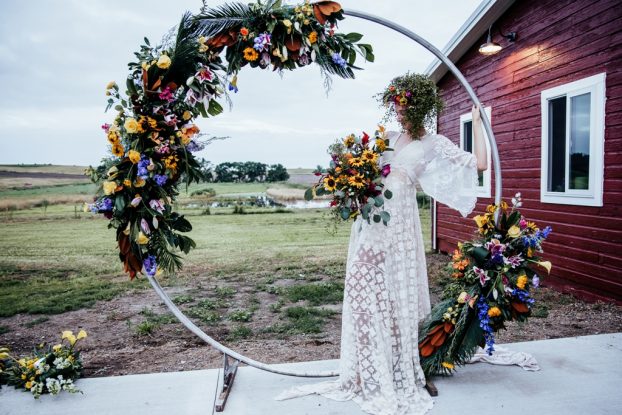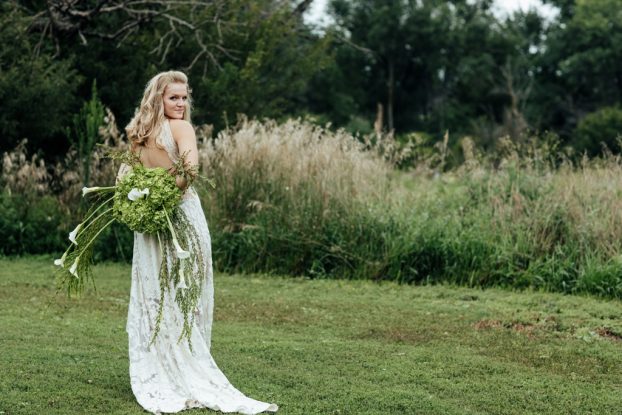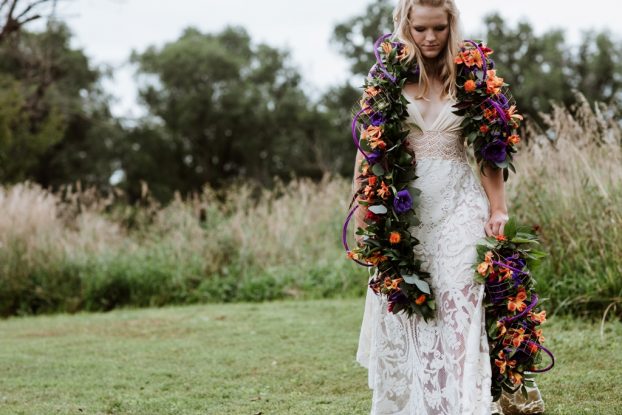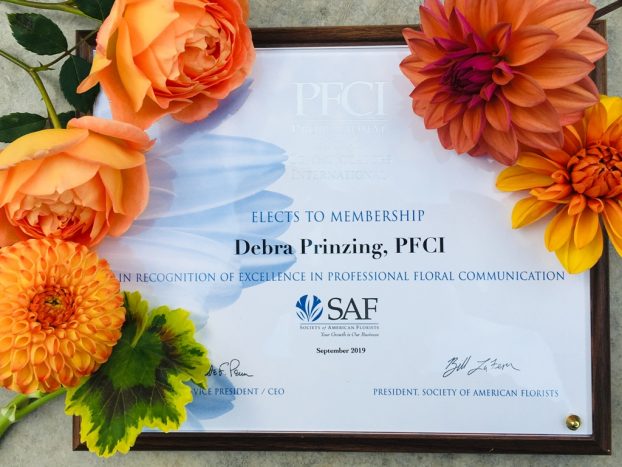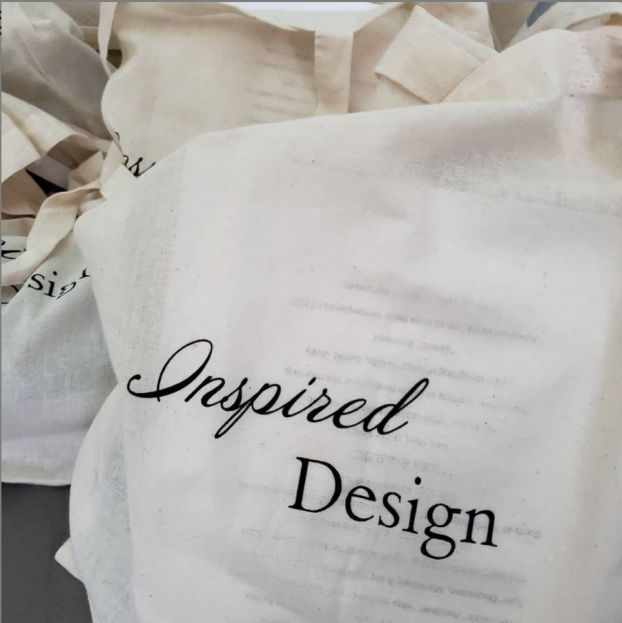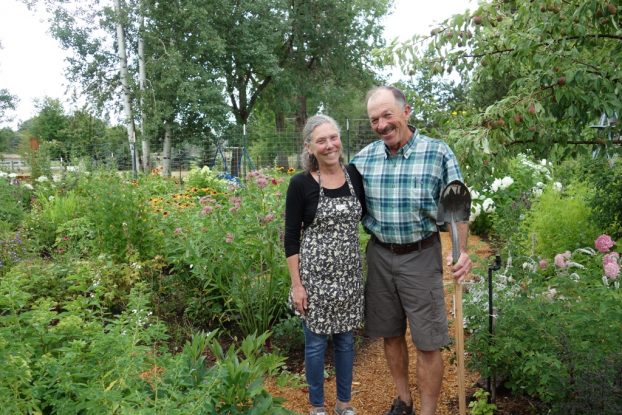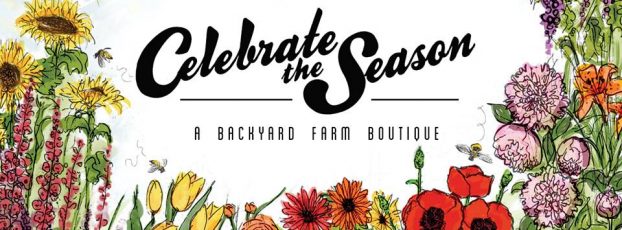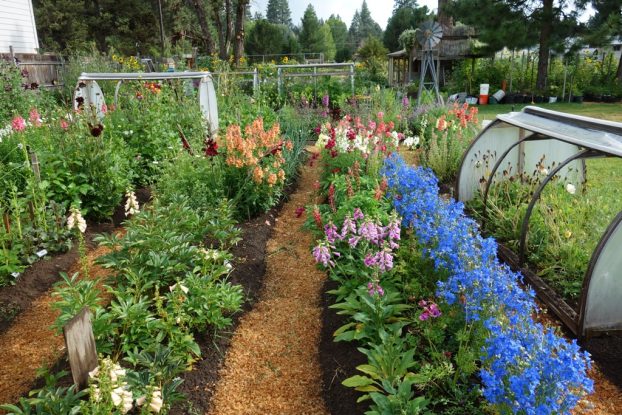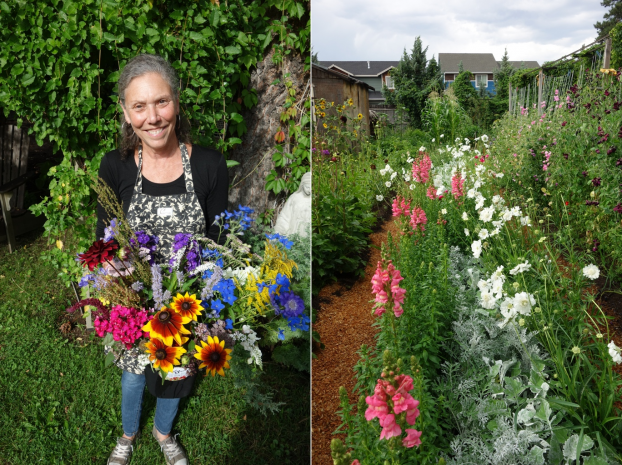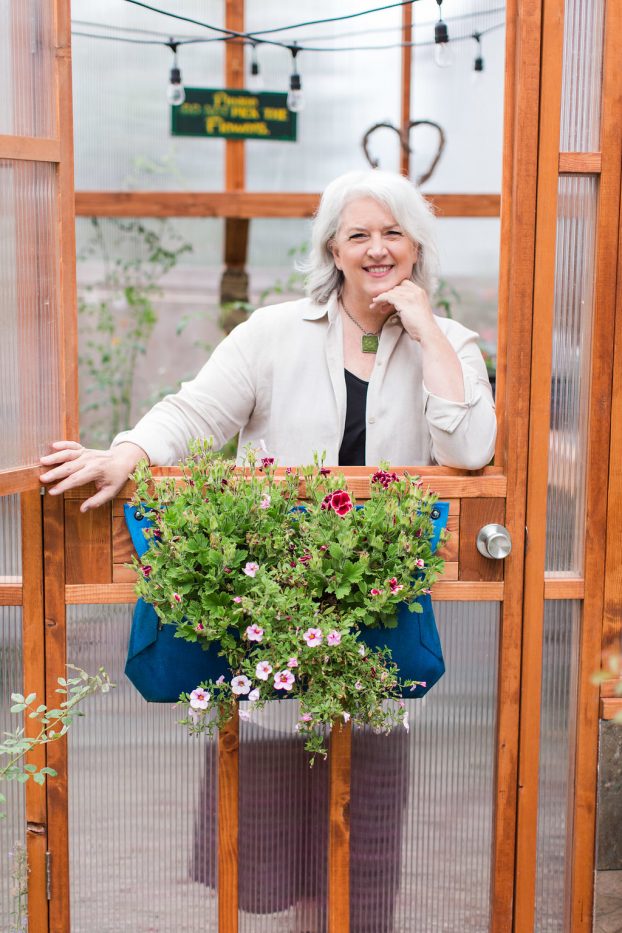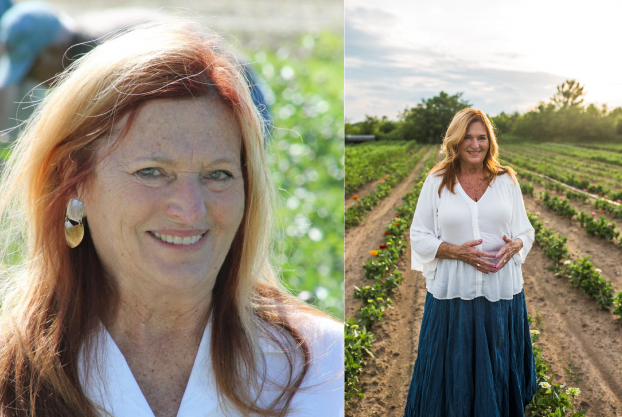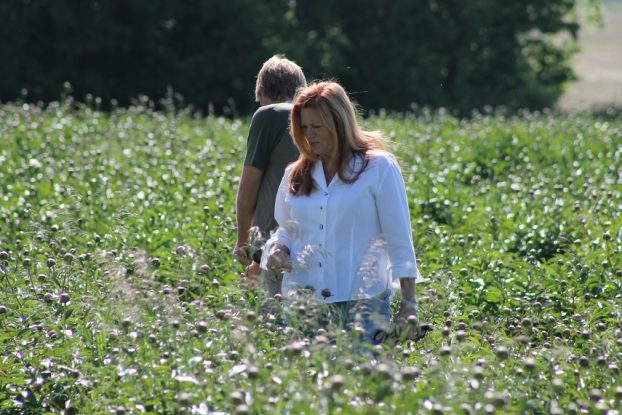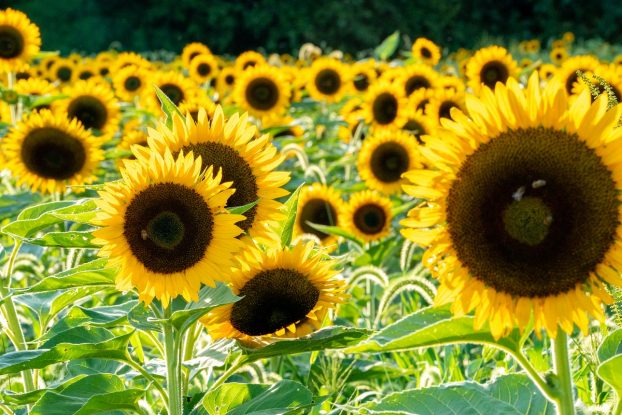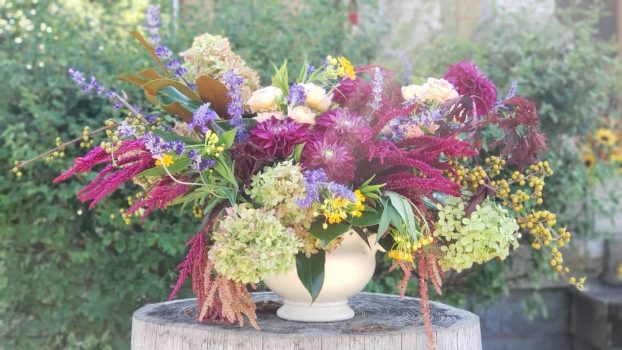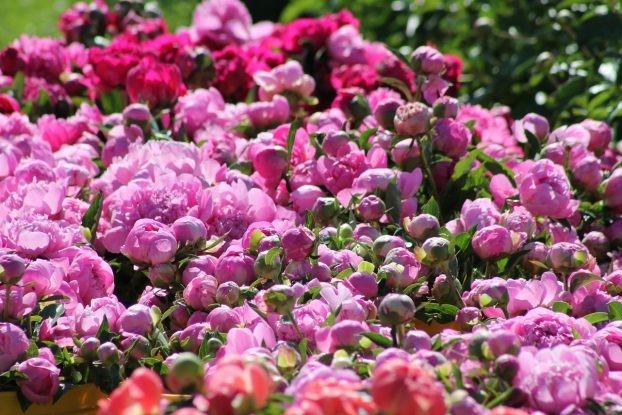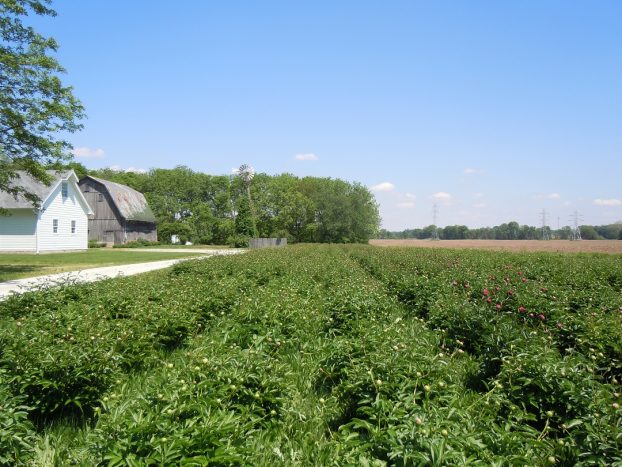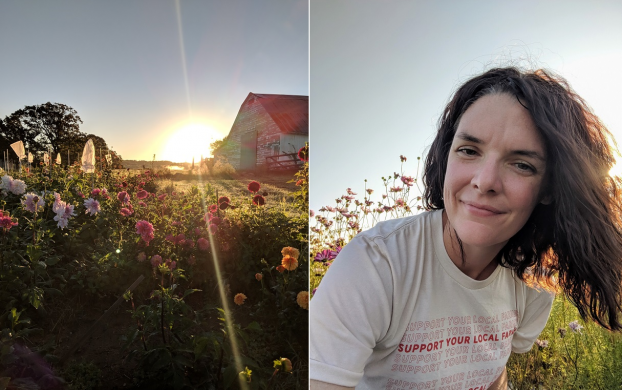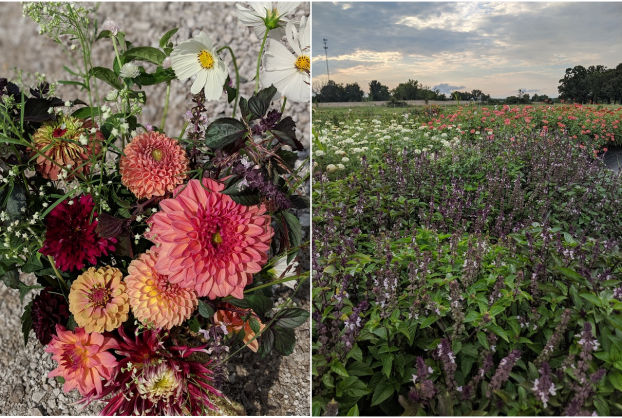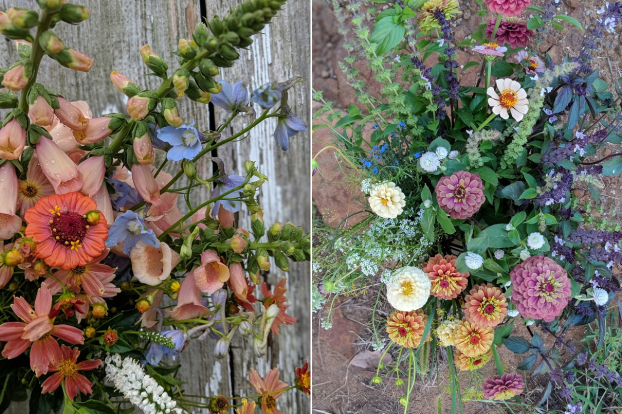Podcast: Play in new window | Download
Subscribe: Apple Podcasts | Podcast Index | RSS | More
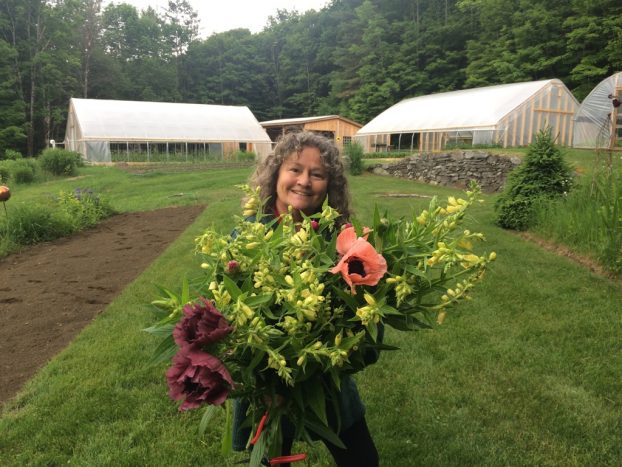
Fifty States of Slow Flowers continues today with a visit to Vermont — we are quickly working our way through the A-to-Z alphabetical list of U.S. states and it has been such a fabulous experience to bring you along with me.
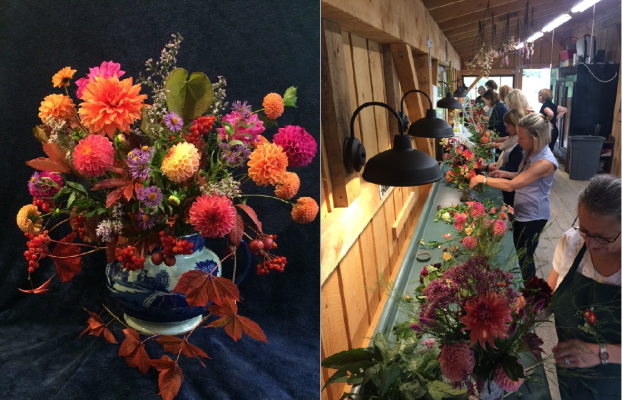
I’ve been wanting to spend time with Liz Krieg of Maple Flower Farm, based in Bethel, Vermont. Much earlier this year I asked Liz if she would be my Vermont guest on this series — and of course she agreed. I expected to record the interview long-distance, as I sometimes need to do, but to my surprise, I ran into Liz at Holly Chapple’s Flowerstock in mid-October. So we set aside time during a break to record this interview. What I expected was to be a quick 15-minute conversation soon expanded into nearly an hour-long interview.
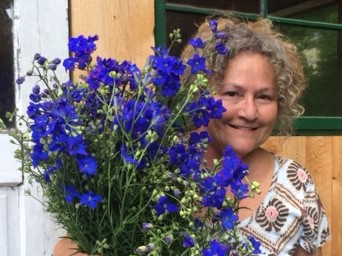
Liz began growing fresh cut flowers in 1989 in Vermont.
She was a total early adopter to cut flower growing – enthusiastically accepting an invitation to be the founding president of the Vermont Cut Flower Council.
Liz says she “was the point girl for every farmer in the state who wanted to get rich quick.” She continues: “The flurry lasted about 2-4 years and local fresh cuts were a hard sell back then. None of the florists were ready to trust “local grown”. Out of the numerous wannabe flower farmers, only two of the original members are still in business today. The Vermont Cut Flower Council folded, most growers eventually gave up growing flowers and I was one of them.”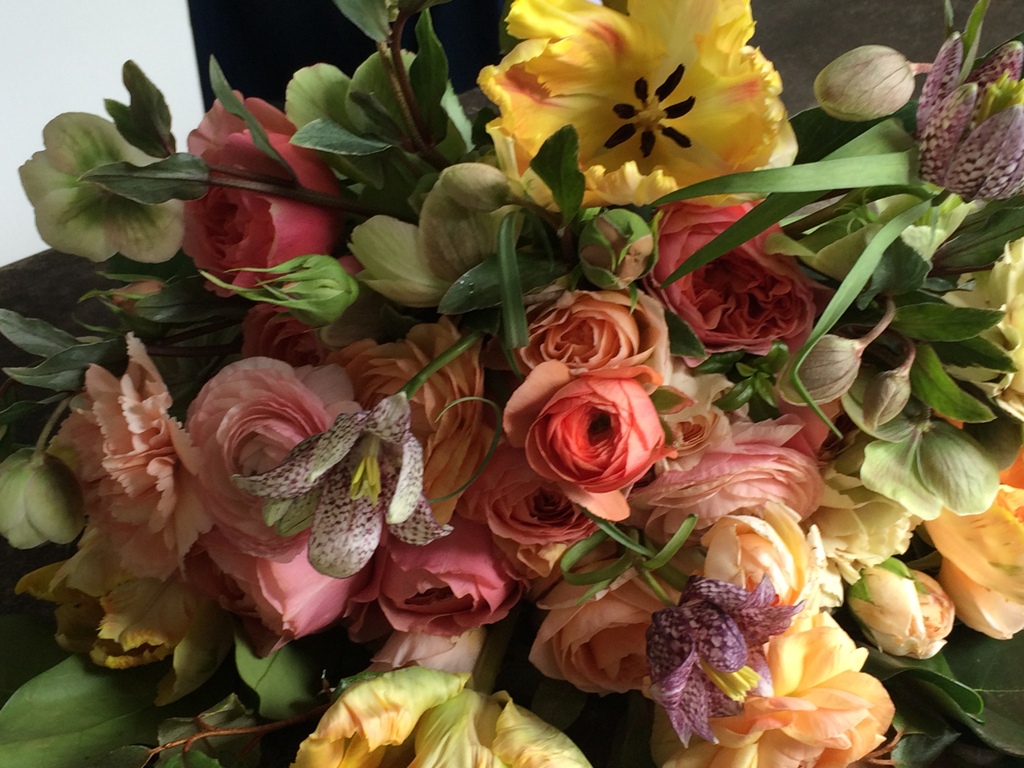
At the time, Liz was a young mother, a degreed horticulturist, and out of need she put her knowledge into building a successful landscape enterprise (complete with greenhouses), which she owned and operated for 20 years. Liz sold that business and she has turned her focus to her burgeoning home gardens. Flowers have always been key to my happiness.
She continues: “It was C. S. Lewis who said, ‘You are never too old to set another goal or to dream a new dream.’ In my case it is ‘dream an old dream.’ I was casting about for the next reinvention of ‘me.’ I realized that my fondest memories were, and are, the pink, dew-laden mornings picking armloads of flowers. Yeah, it sounds romantic, but it is proven that I am not faint of heart when it comes to hard work and I’ve earned the right to put a little fairy dust on it if I wish.”
Today, Liz grows fresh cut flowers in abundance! She is working this good earth, with harmless inputs and sustainable methods. The flowers shine brilliantly. The birds and bees are happy. What more is there?
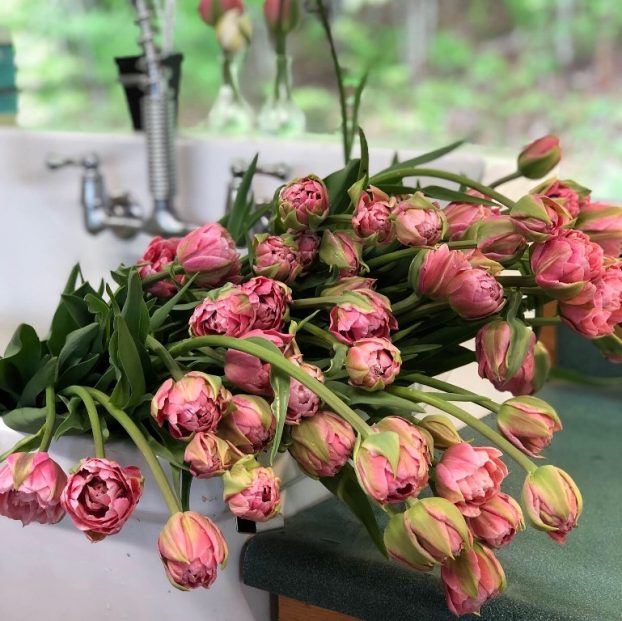
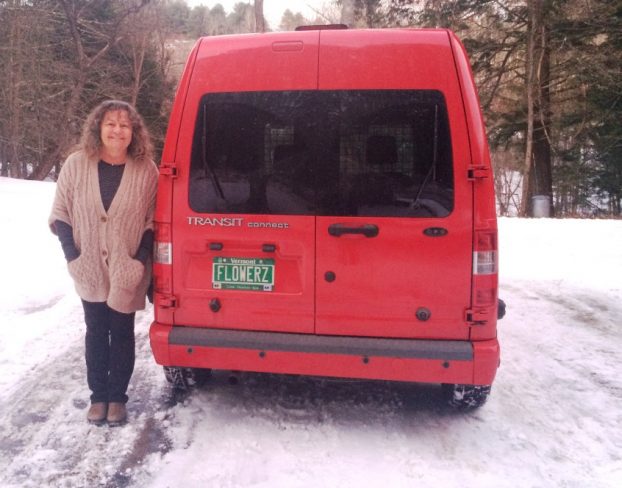
Thanks so much for joining me today for this very special conversation. Liz’s joy and passion are truly contagious and I can’t wait to visit her (PS, there is an Air BNB unit at Maple Flower Farm, so that is tempting!)
I think the most compelling message from Liz is that we can always reinvent ourselves. As she says: Dream and old Dream. Take heart from this lovely sentiment.
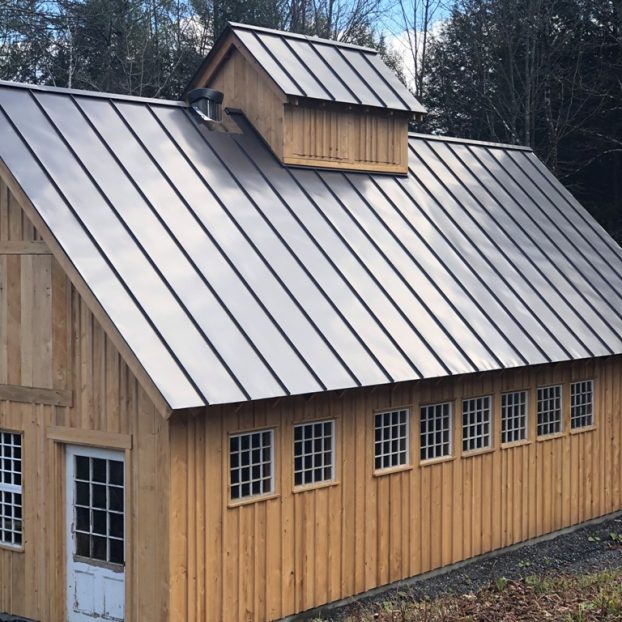
You can find and follow Liz Krieg of Maple Flower Farm at these social places:
Maple Flower Farm on Instagram
Maple Flower Farm on Pinterest

Meeting Liz in person to record this interview was such a treat. The face-to-face opportunities to connect with and learn from one another is at the heart of Slow Flowers Community. In fact, it is one of the top-ranked reasons for attending the Slow Flowers Summit.

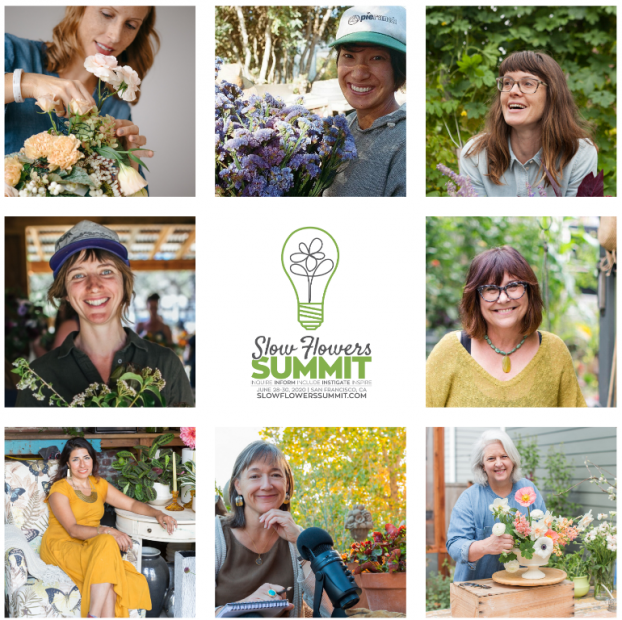
I mention this because we announced the 2020 Slow Flowers Summit venue and speaker lineup earlier this week. You’ll want to tune in next week for our bonus episode on December 2nd where you’ll meet some of the key people involved in the fourth annual Slow Flowers Summit, which takes place June 28-30, 2020 at Filoli Historic House and Gardens just outside San Francisco.
This is a location change from our original plans — and due to some scheduling and logistic issues, the move was necessitated. I couldn’t be happier to partner with Filoli — you are invited to join the fun!
Thank you to our Sponsors
 And thank you to our lead sponsor, Florists’ Review magazine. I’m delighted to serve as Contributing Editor for Slow Flowers Journal, found in the pages of Florists’ Review. Our partnerships with Florists’ Review is such a valuable one, providing a forum for beautiful and inspiring editorial content in the #slowflowersjournal section – month after month. Thanks to Florists’ Review, you can now order a subscription for yourself + give one as a gift this holiday season. Set your 2020 intention to enrich your personal and professional development! You can find the Buy-One-Gift-One special offer for members of the Slow Flowers Community.
And thank you to our lead sponsor, Florists’ Review magazine. I’m delighted to serve as Contributing Editor for Slow Flowers Journal, found in the pages of Florists’ Review. Our partnerships with Florists’ Review is such a valuable one, providing a forum for beautiful and inspiring editorial content in the #slowflowersjournal section – month after month. Thanks to Florists’ Review, you can now order a subscription for yourself + give one as a gift this holiday season. Set your 2020 intention to enrich your personal and professional development! You can find the Buy-One-Gift-One special offer for members of the Slow Flowers Community.
Syndicate Sales, an American manufacturer of vases and accessories for the professional florist. Look for the American Flag Icon to find Syndicate’s USA-made products and join the Syndicate Stars loyalty program at syndicatesales.com.
FarmersWeb. FarmersWeb software makes it simple for flower farms to streamline working with their buyers. By lessening the administrative load and increasing efficiency, FarmersWeb helps your farm save time, reduce errors, and work with more buyers overall. Learn more at www.farmersweb.com.
Arctic Alaska Peonies, a cooperative of family farms in the heart of Alaska working together to grow and distribute fresh, stunning, high-quality peony varieties during the months of July and August – and even September. Arctic Alaska Peonies operates three pack houses supplying peonies throughout the United States and Canada. Visit them today at arcticalaskapeonies.com.
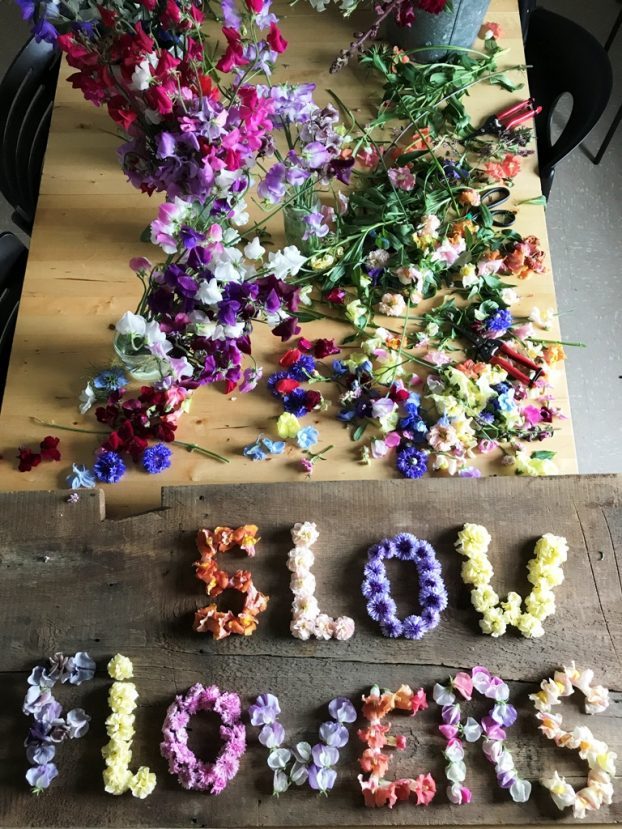
The Slow Flowers Podcast has been downloaded more than 550,000 times by listeners like you. Thank you for listening, commenting and sharing – it means so much.
This podcast is brought to you by Slowflowers.com, the free, nationwide online directory to florists, shops, and studios who design with American-grown flowers and to the farms that grow those blooms. It’s the conscious choice for buying and sending flowers.
As our movement gains more supporters and more passionate participants who believe in the importance of the American cut flower industry, the momentum is contagious. I know you feel it, too. I value your support and invite you to show your thanks and with a donation to support my ongoing advocacy, education and outreach activities. You can find the donate button in the column to the right.
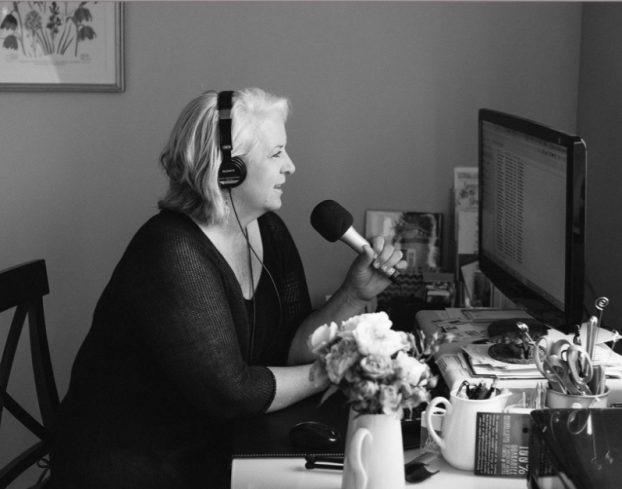
I’m Debra Prinzing, host and producer of the Slow Flowers Podcast. Next week, you’re invited to join me in putting more American grown flowers on the table, one vase at a time. And If you like what you hear, please consider logging onto iTunes and posting a listener review.
The content and opinions expressed here are either mine alone or those of my guests alone, independent of any podcast sponsor or other person, company or organization.
The Slow Flowers Podcast is engineered and edited by Andrew Brenlan. Learn more about his work at soundbodymovement.com.
Music Credits:
Betty Dear; Gaena
by Blue Dot Sessions
http://www.sessions.bluehttps://creativecommons.org/licenses/by-nc/4.0/
Lovely by Tryad
http://tryad.bandcamp.com/album/instrumentals
http://creativecommons.org/licenses/by-sa/3.0/
In The Field
Music from:
audionautix.com









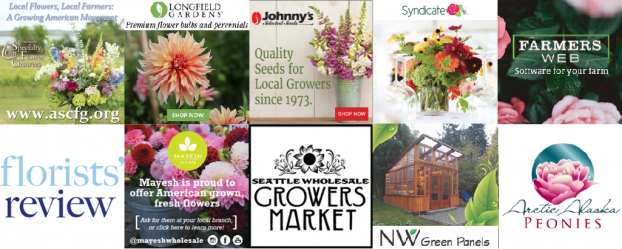
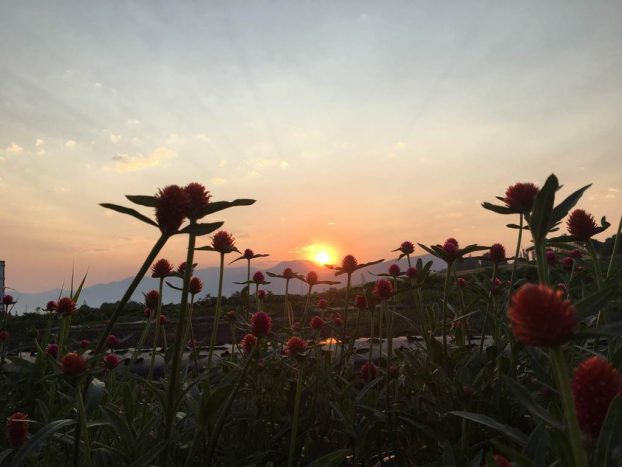
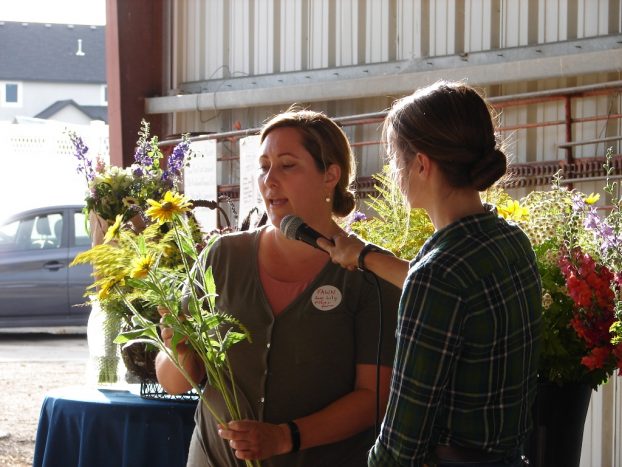
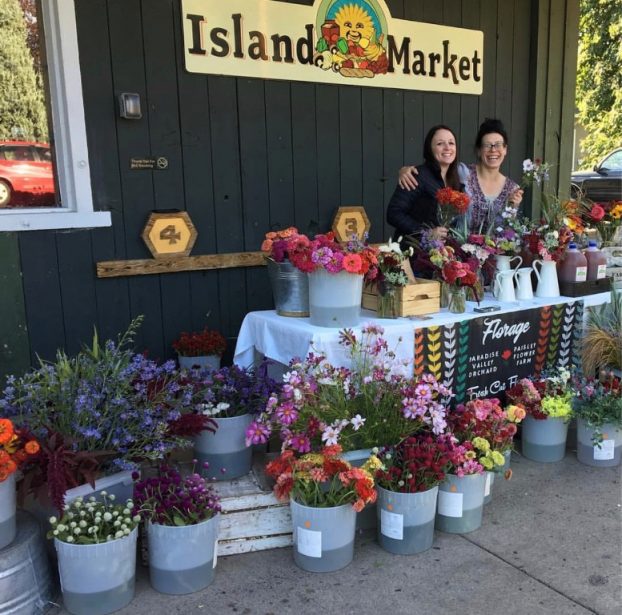
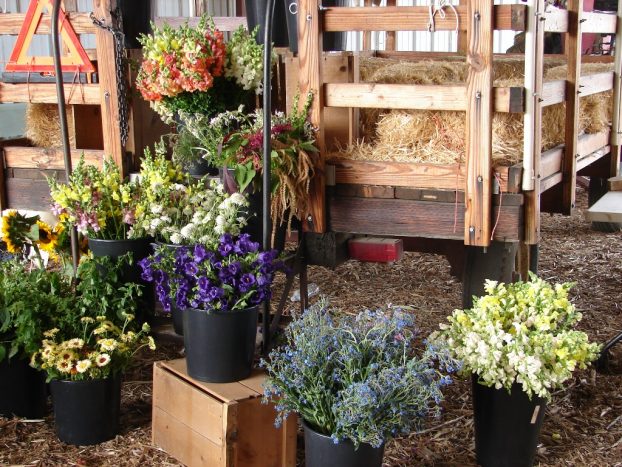
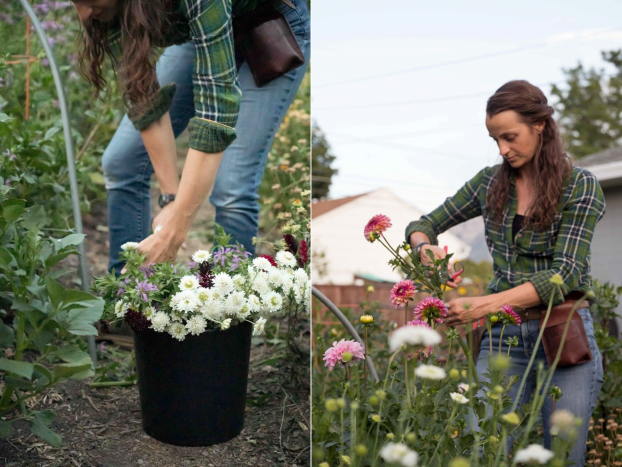
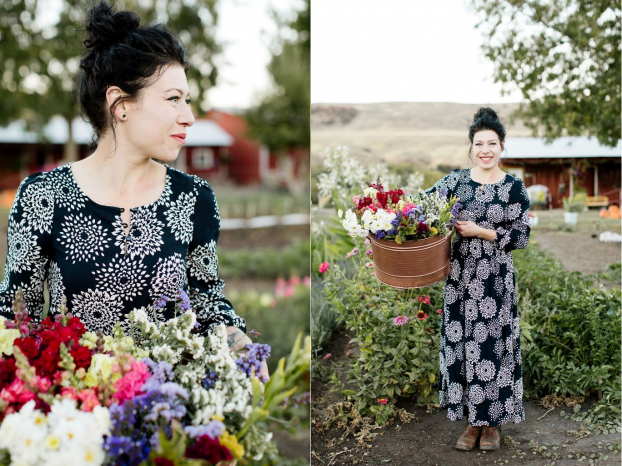
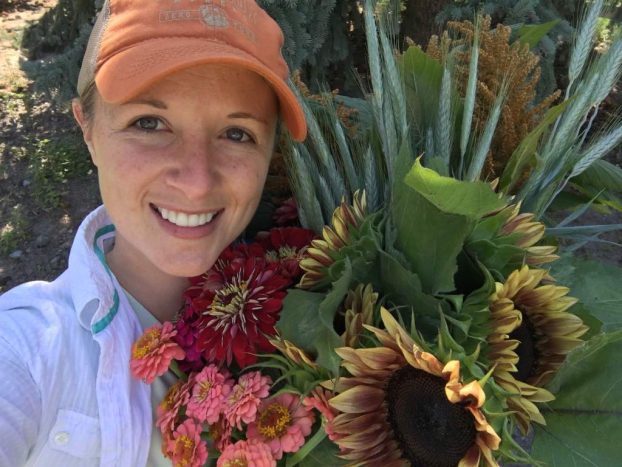
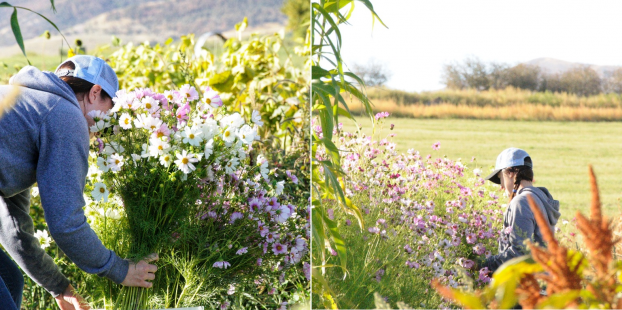
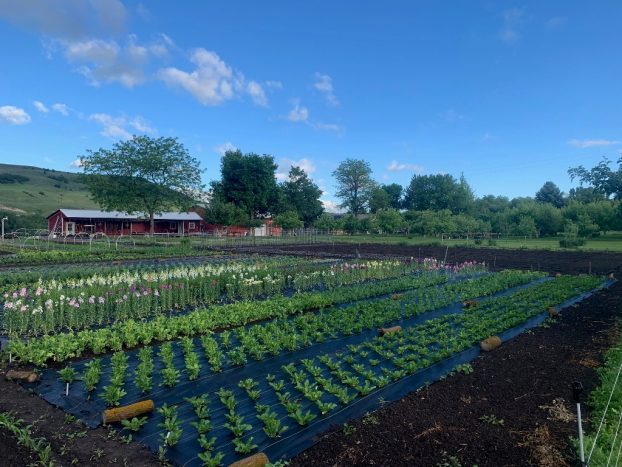
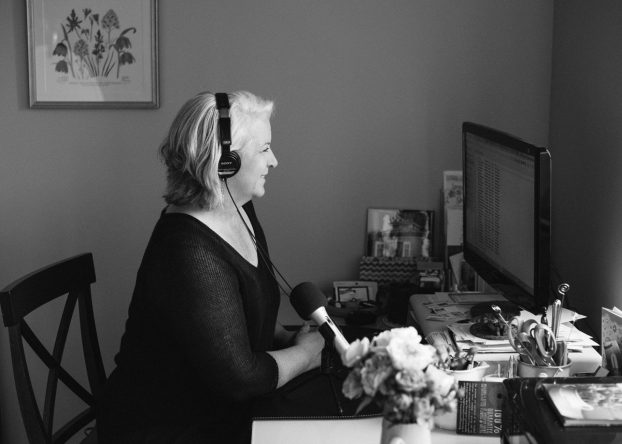
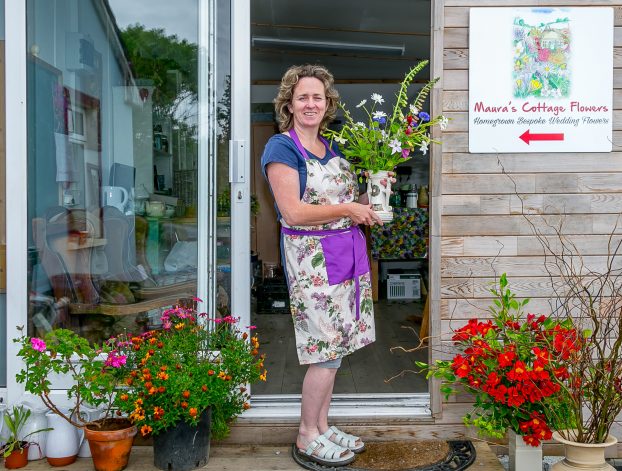
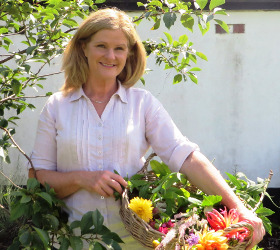

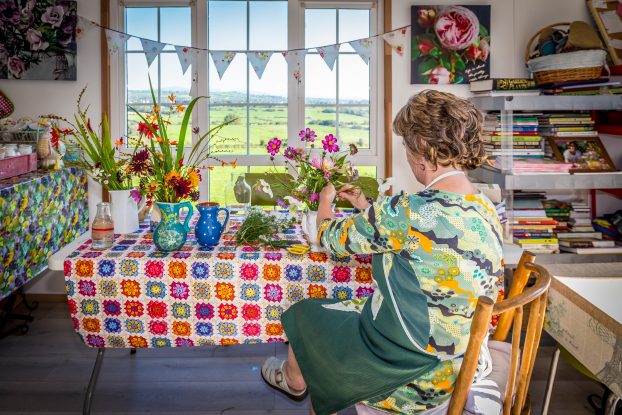
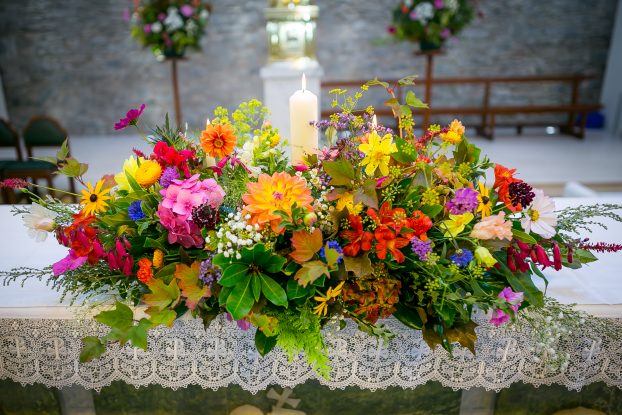
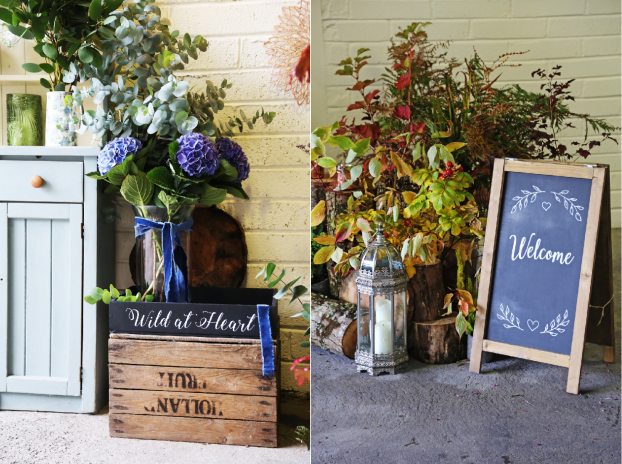
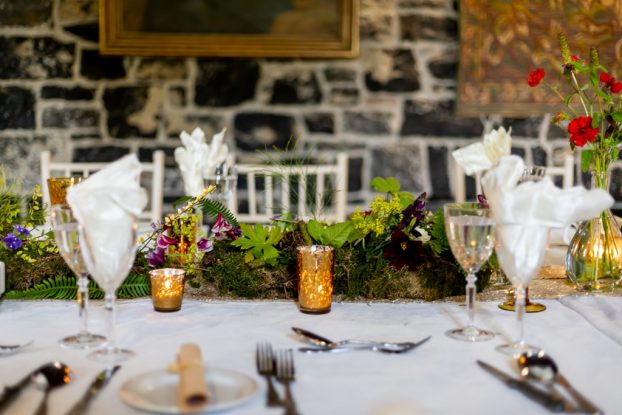
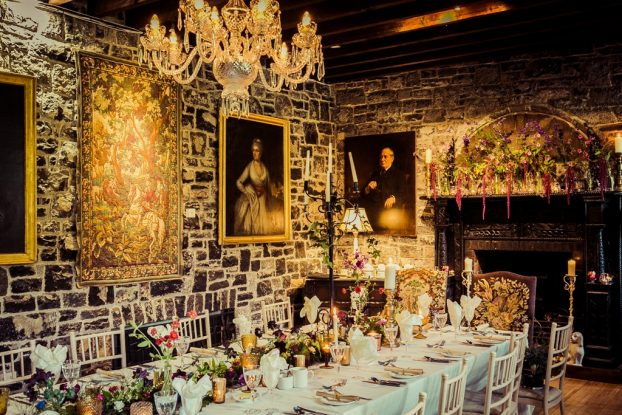
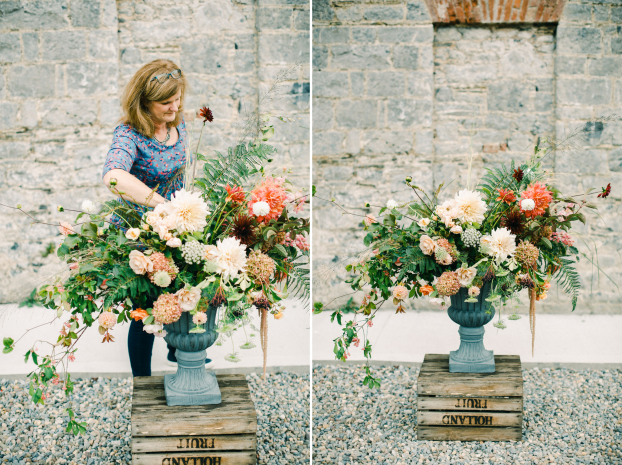
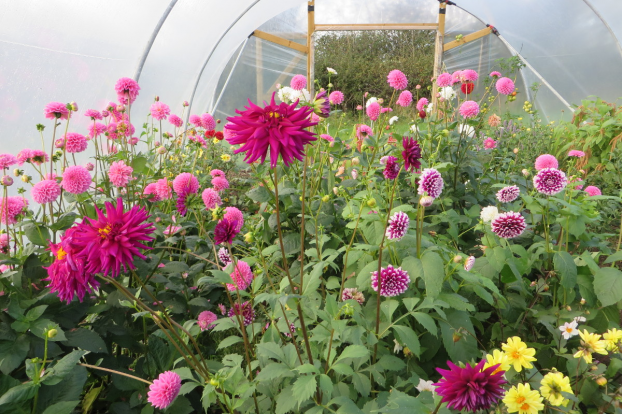
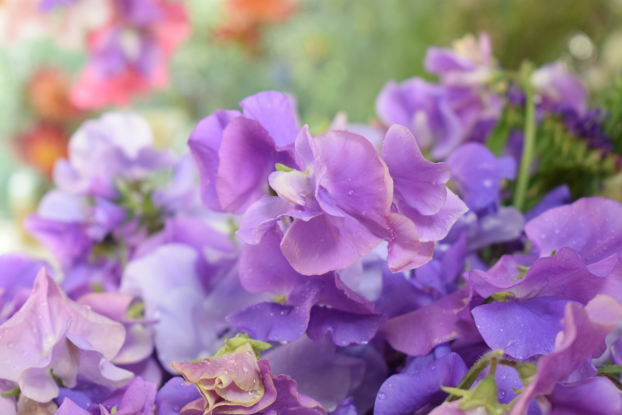
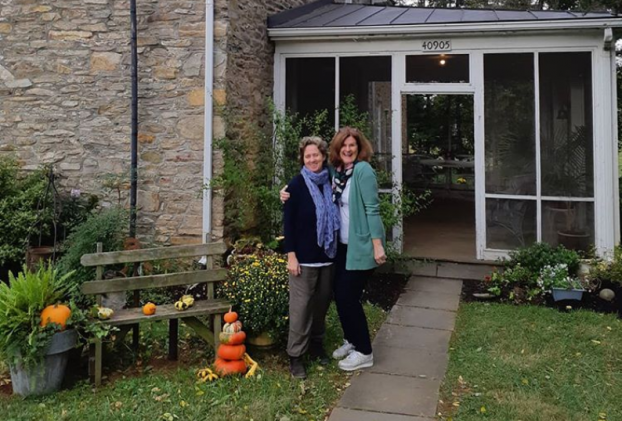
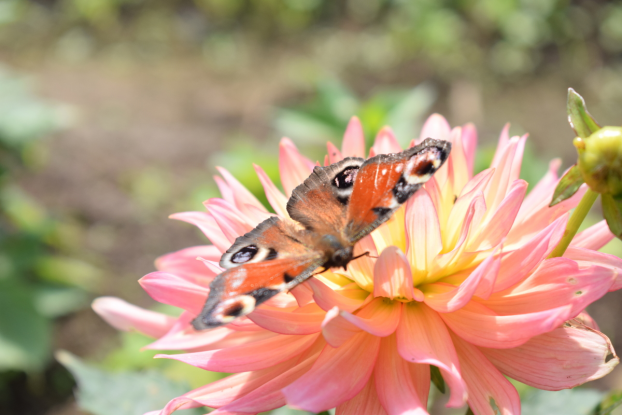
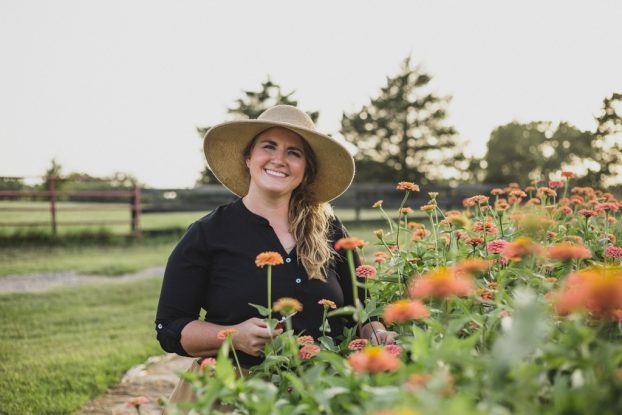
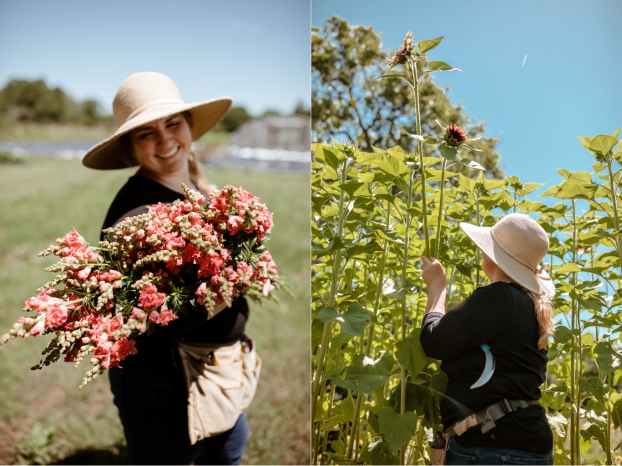
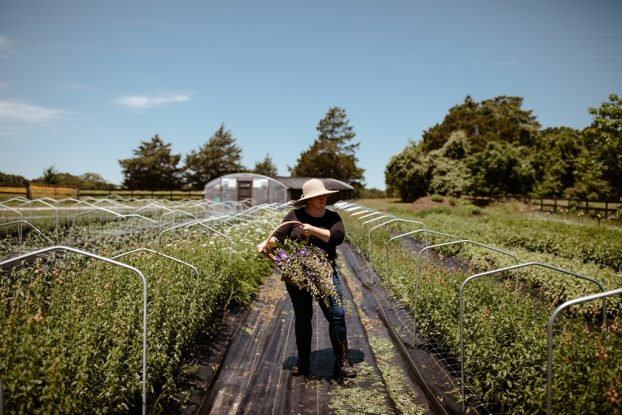
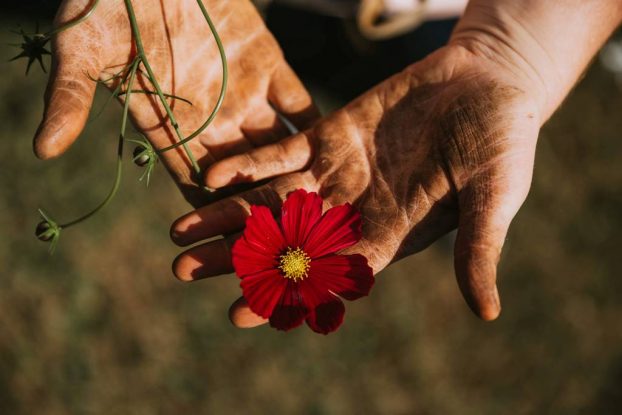

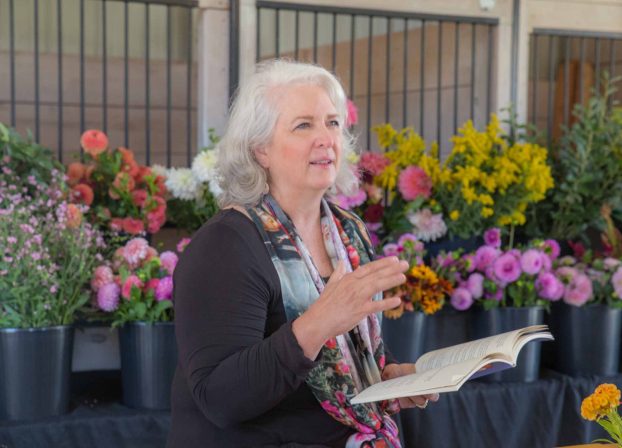
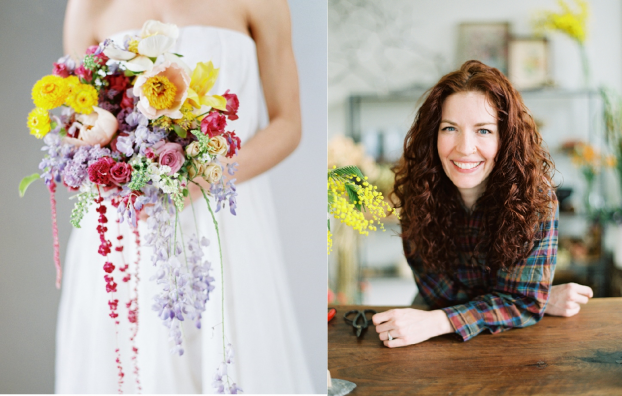
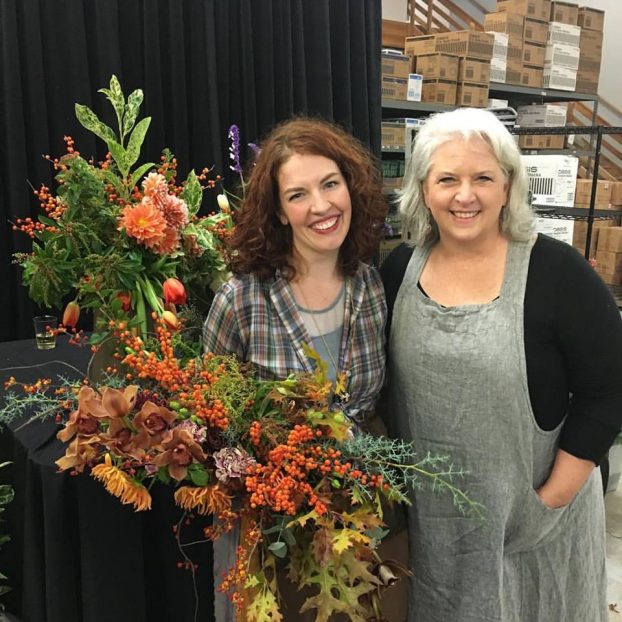
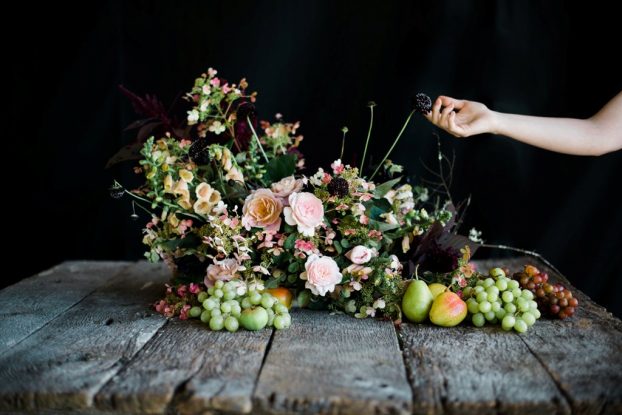
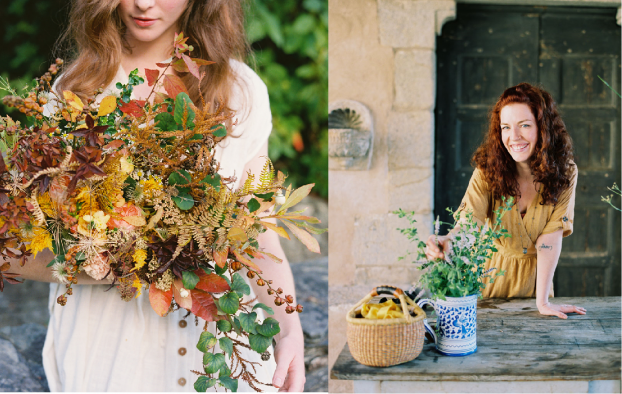
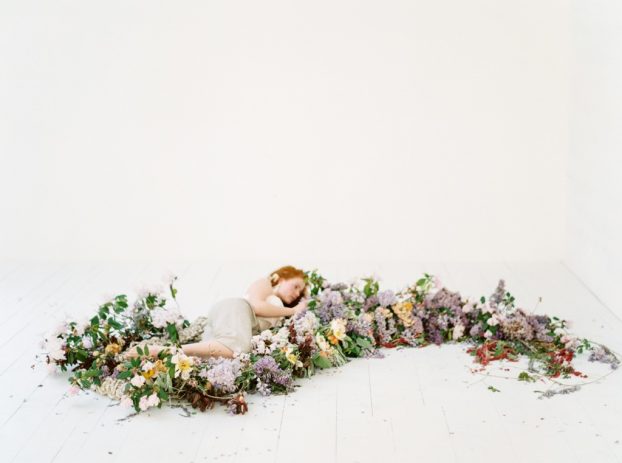
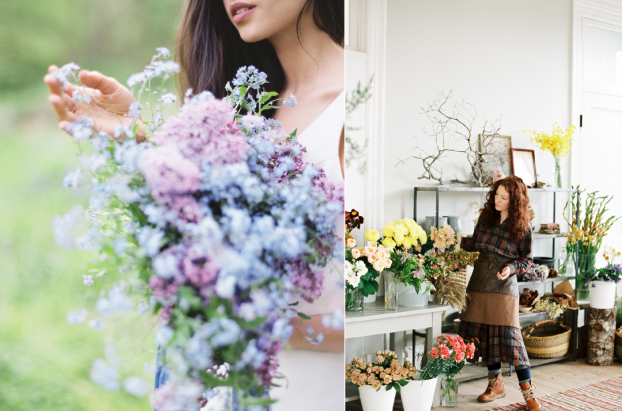
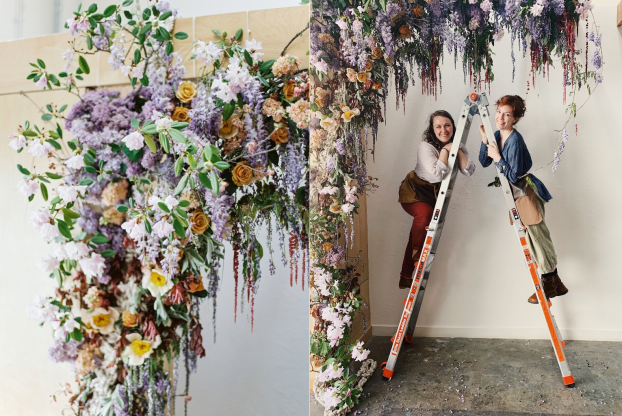
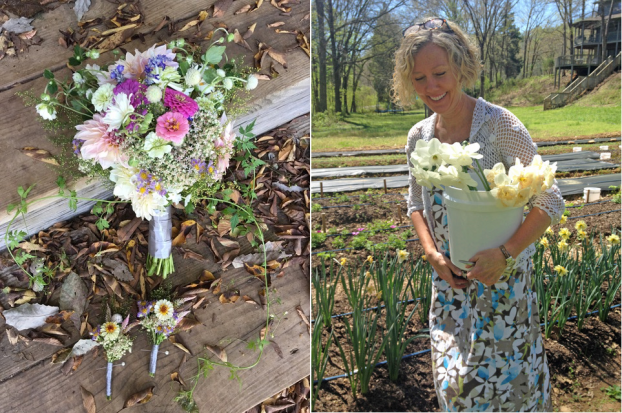
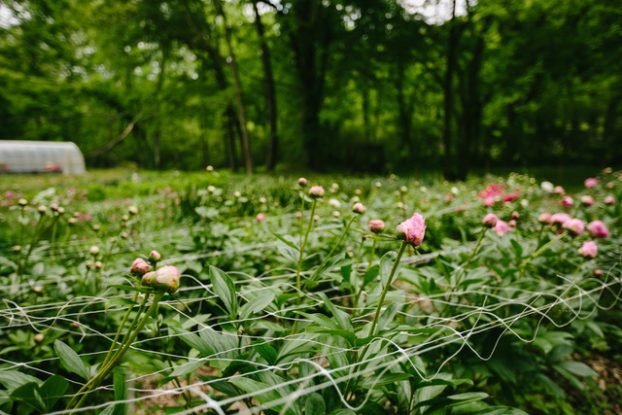
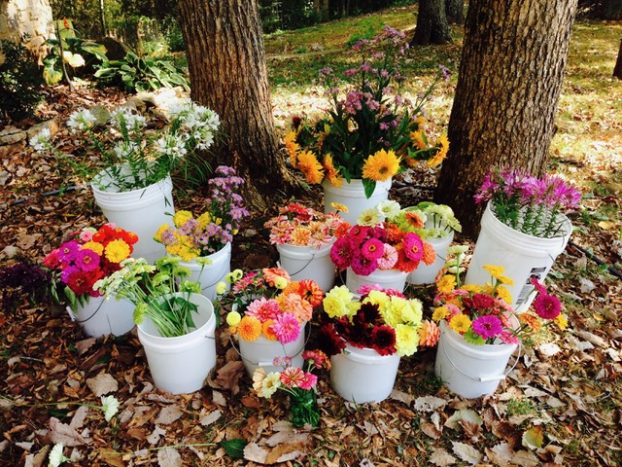
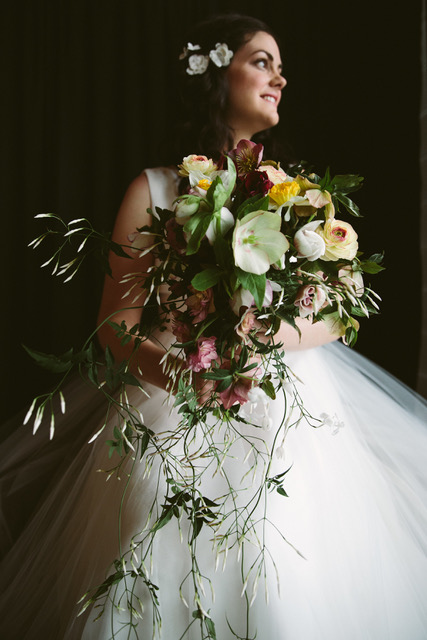
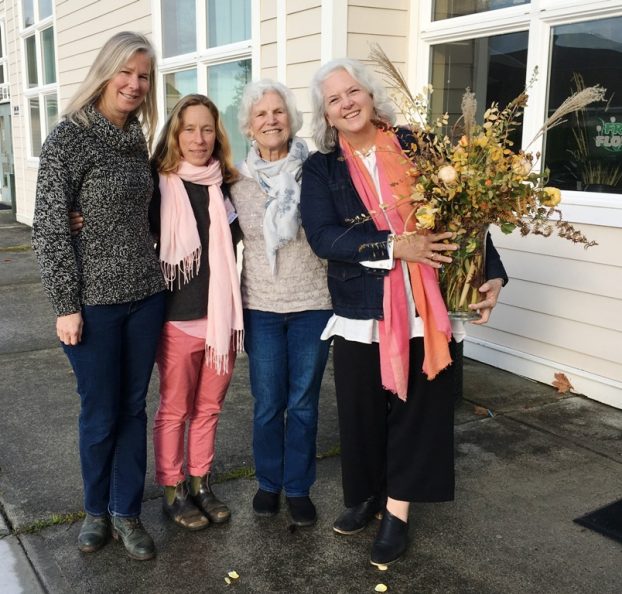
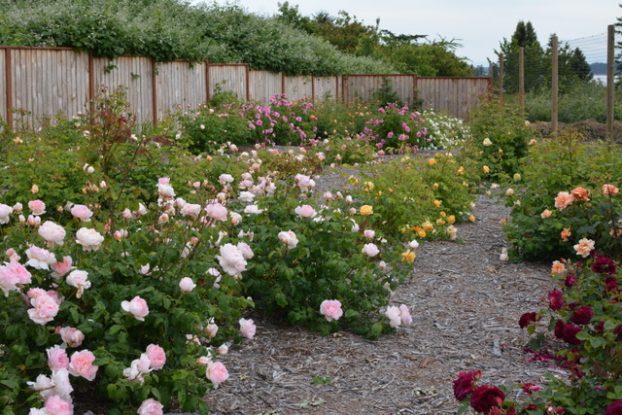
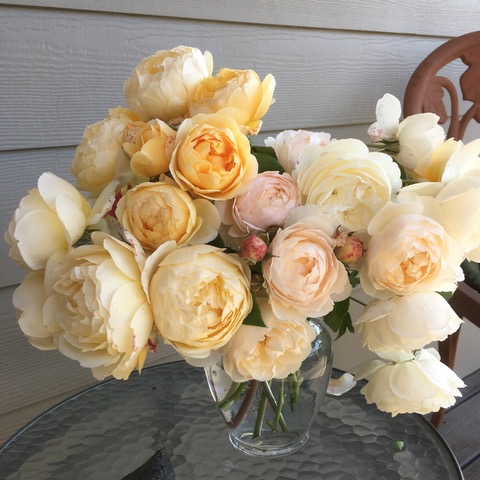
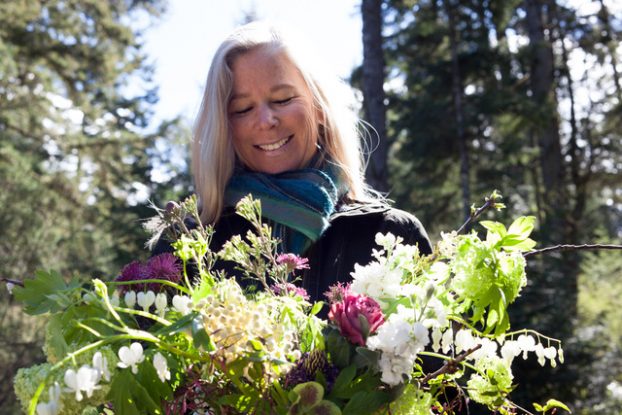
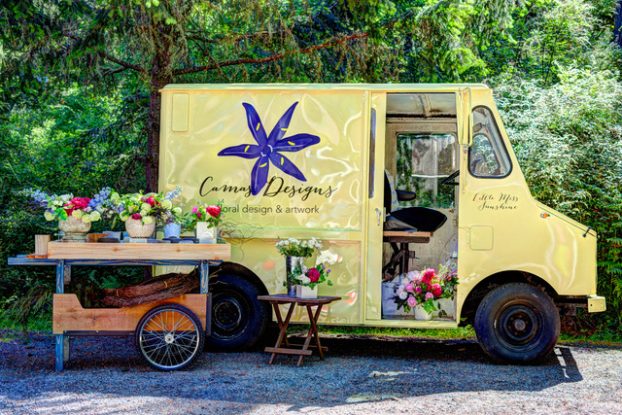
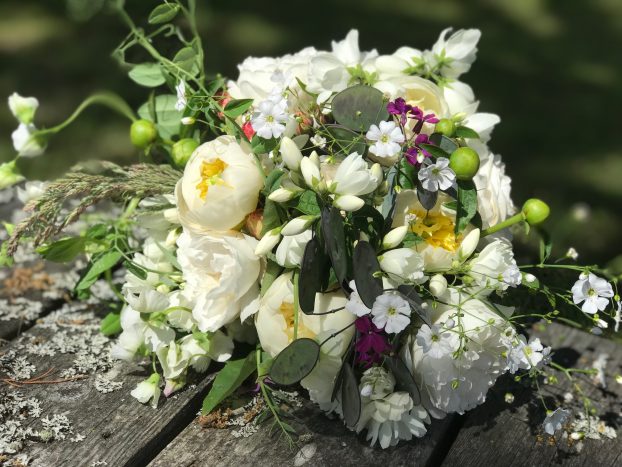
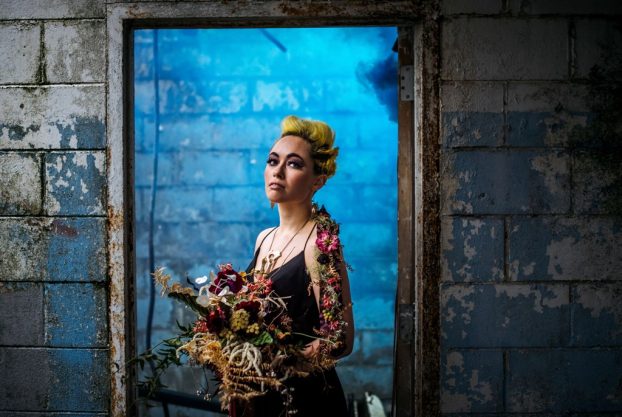
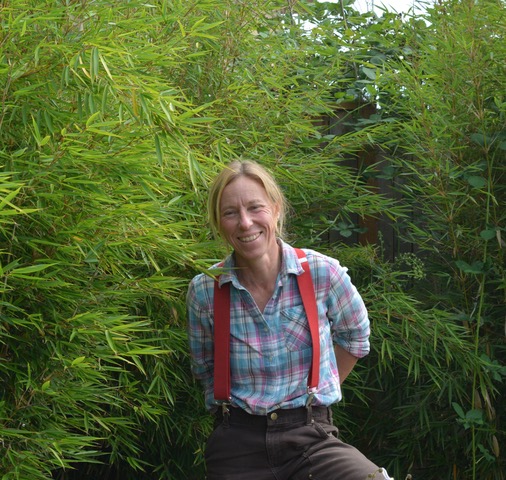
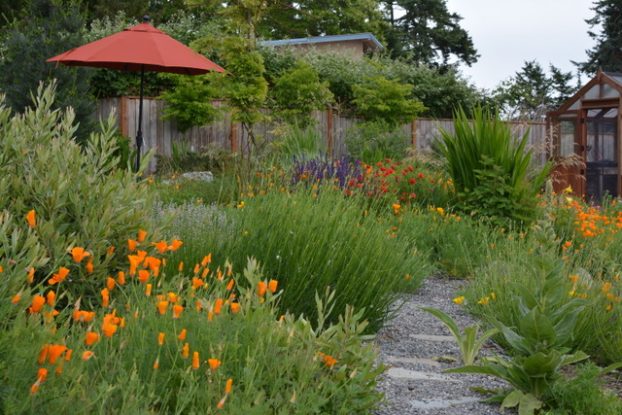
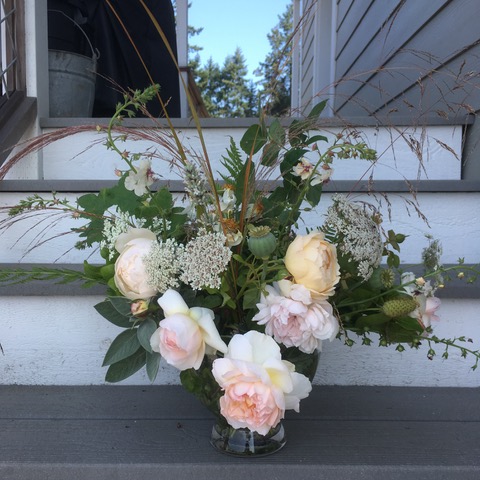
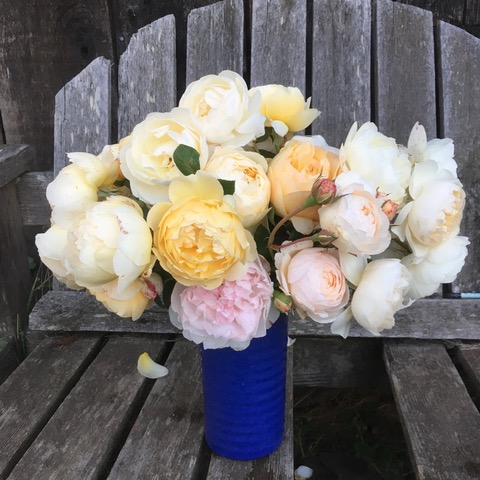
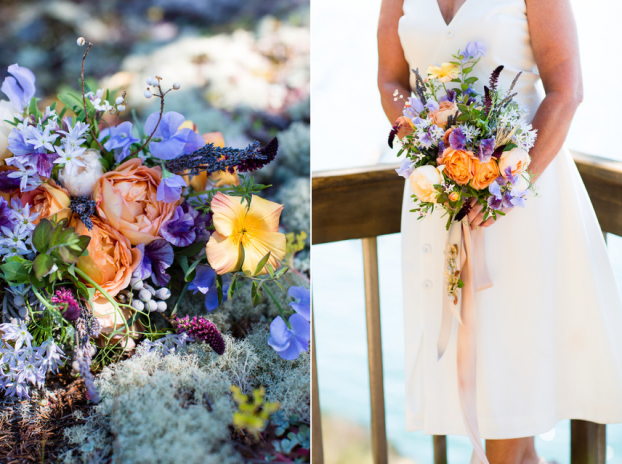
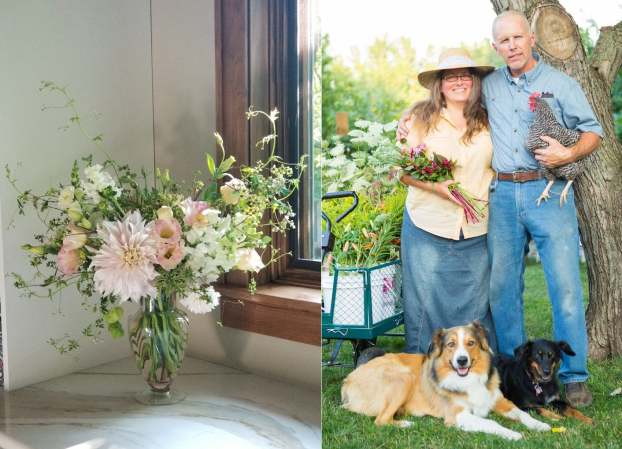
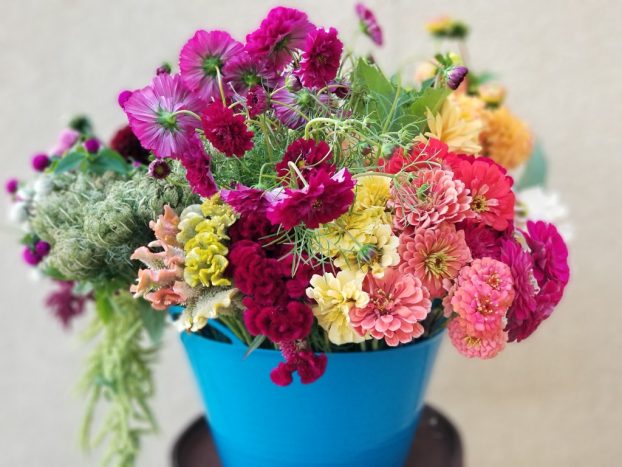
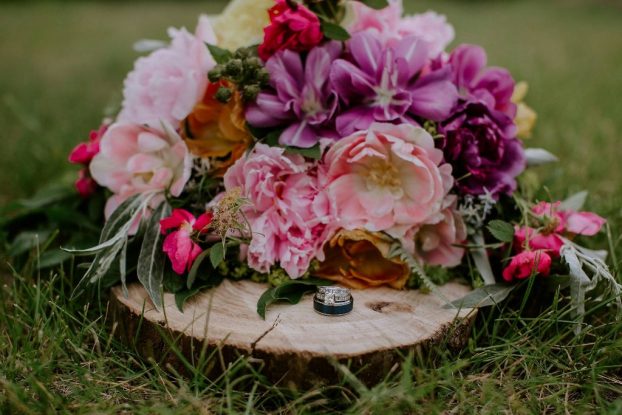
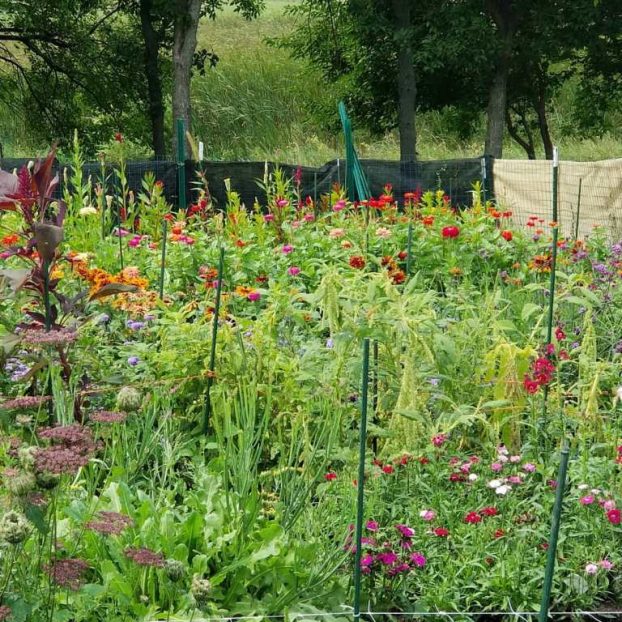
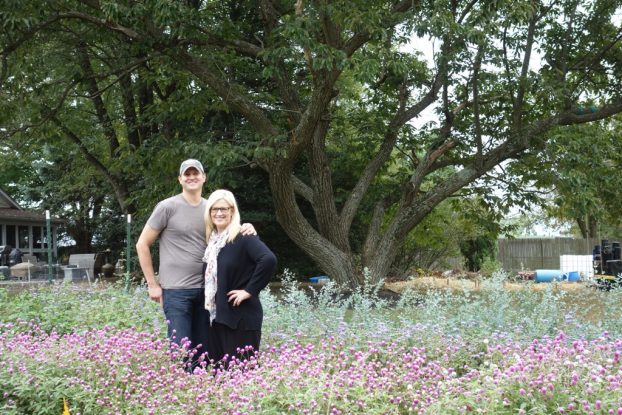
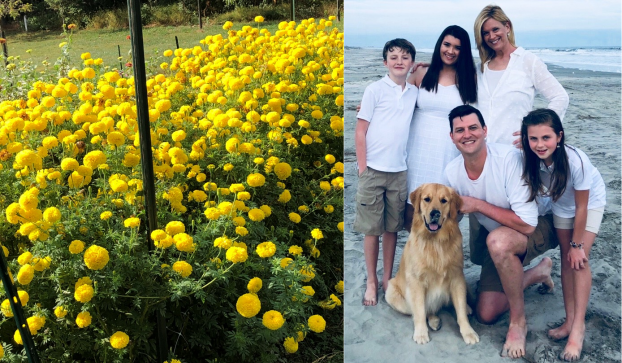
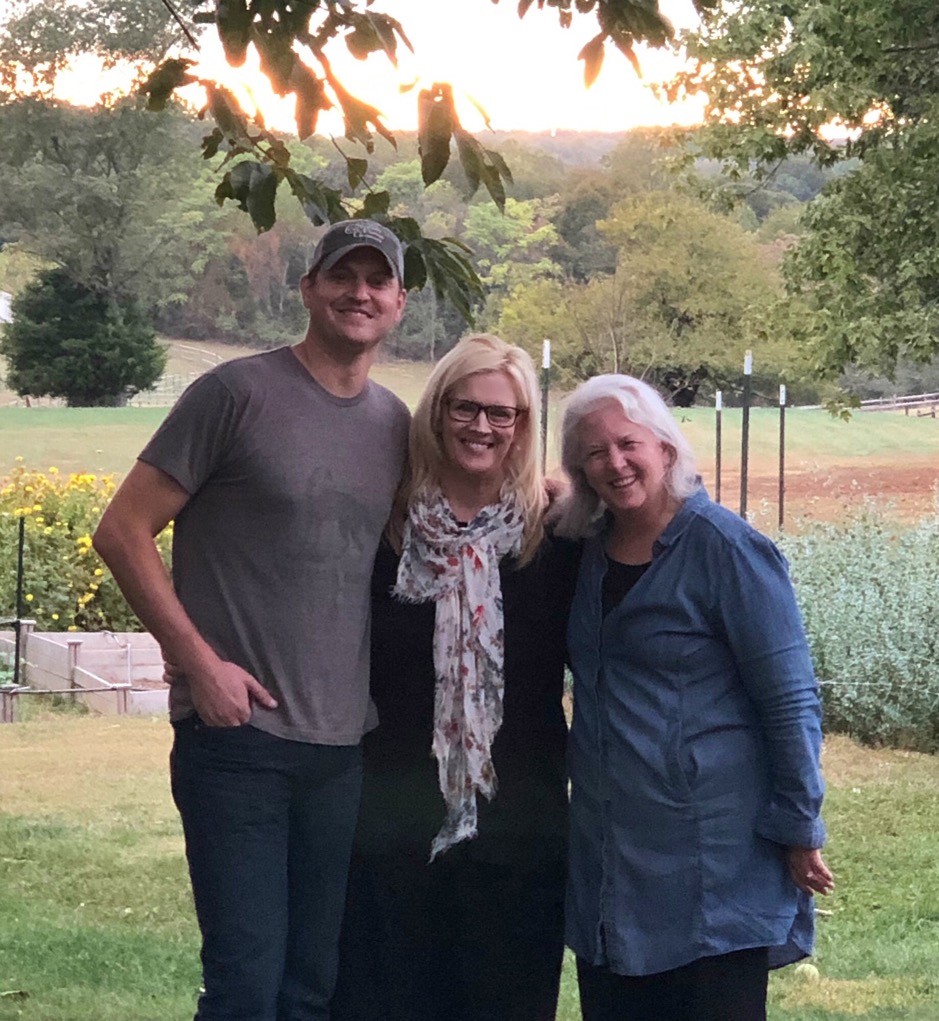 Serendipitously, I met them both at the very beginning when I was
Serendipitously, I met them both at the very beginning when I was 